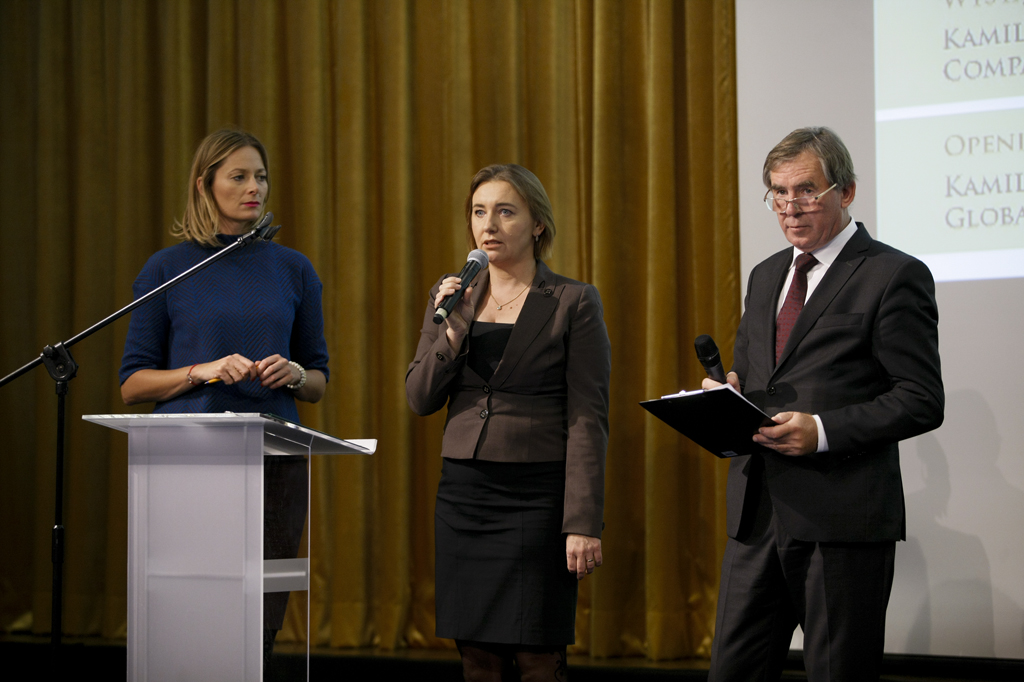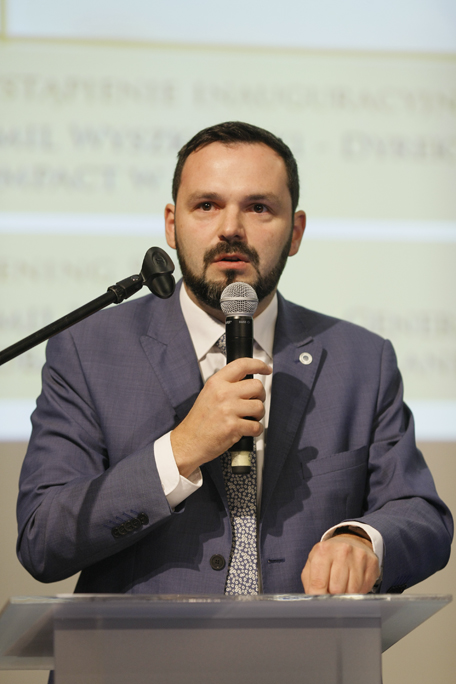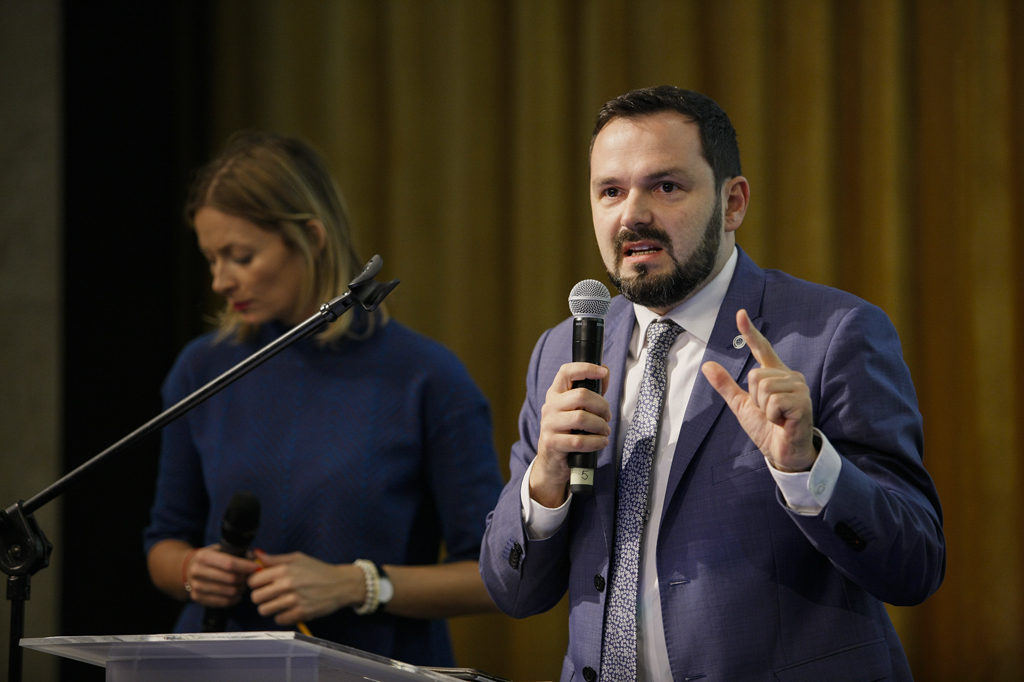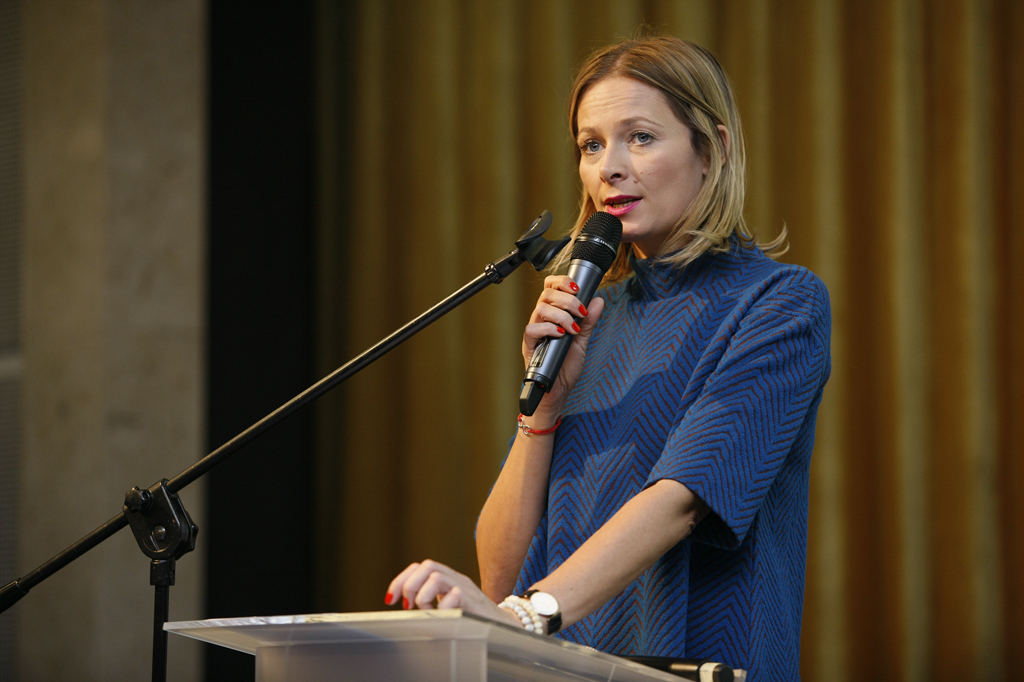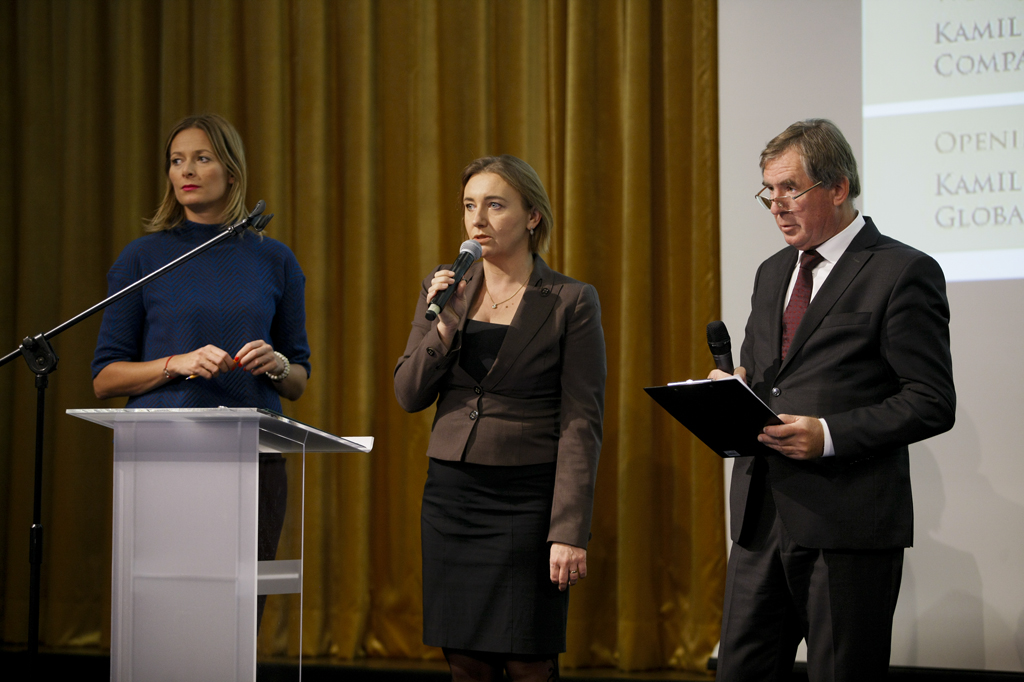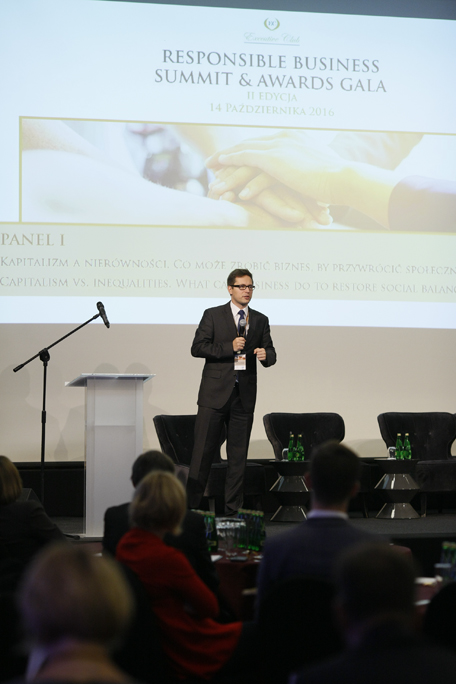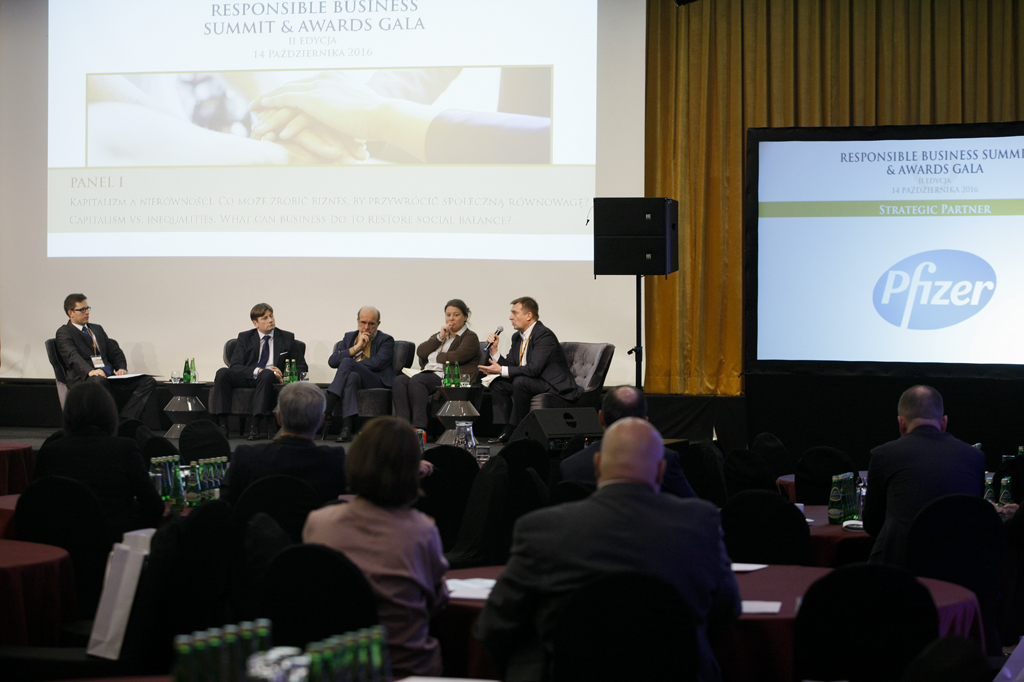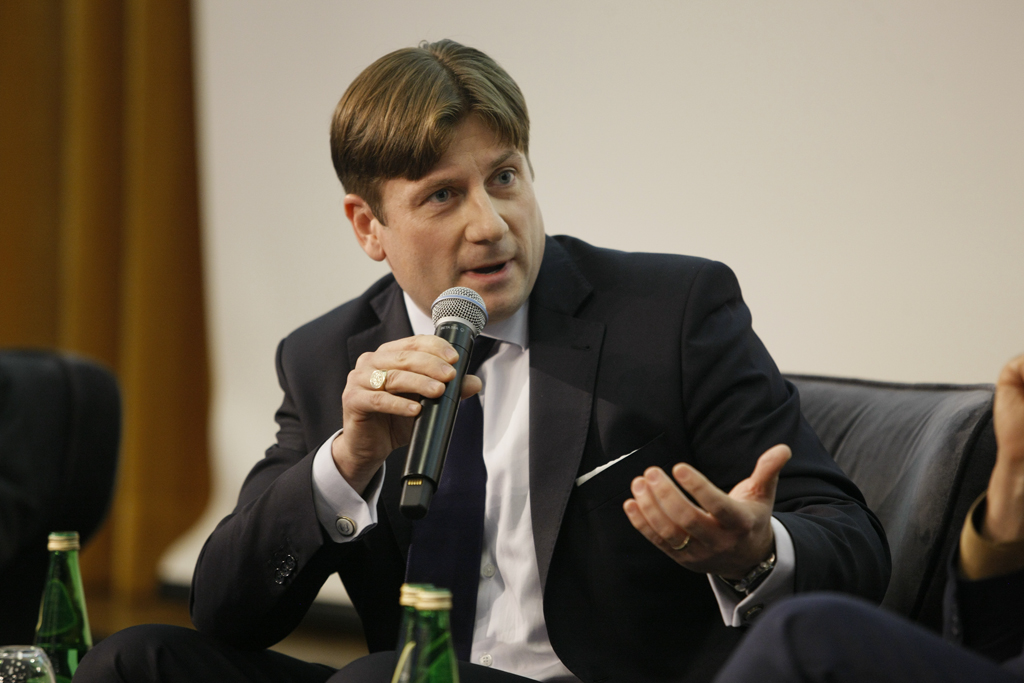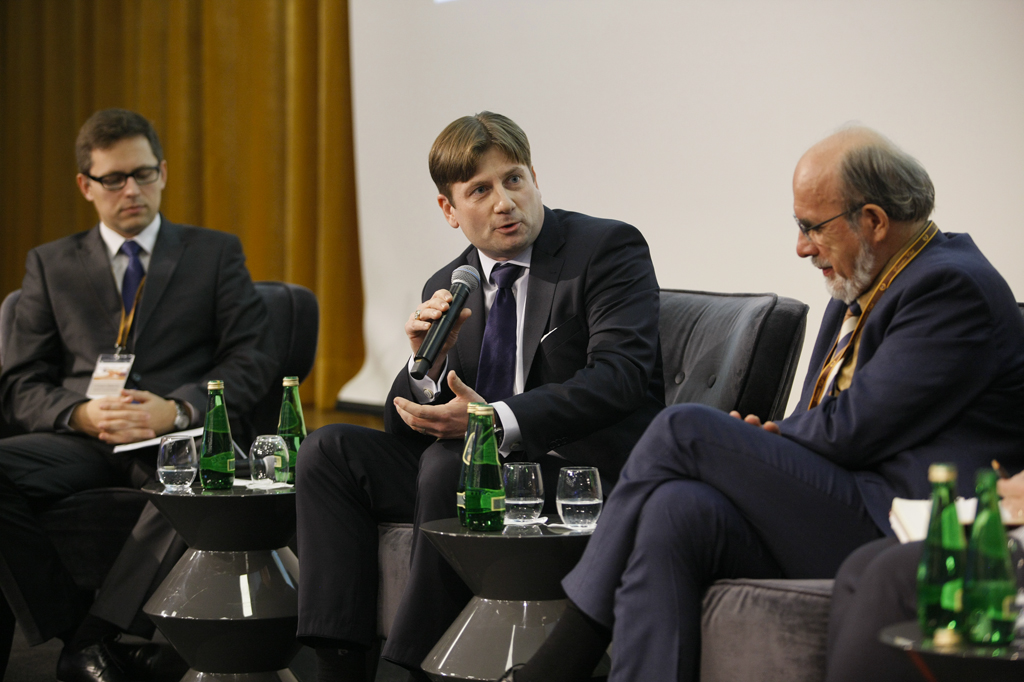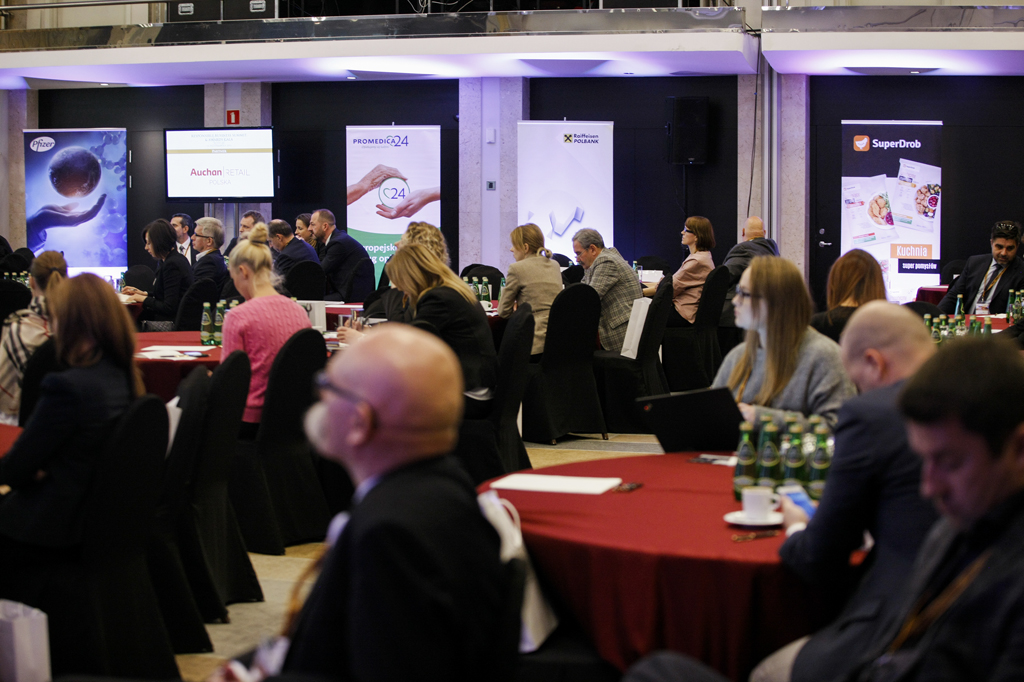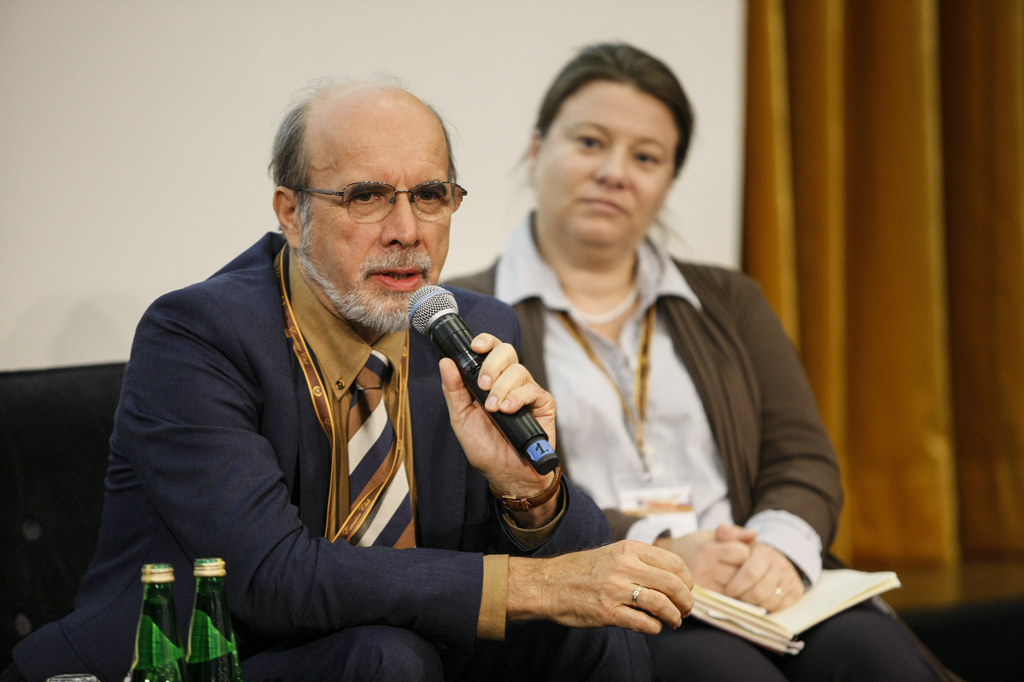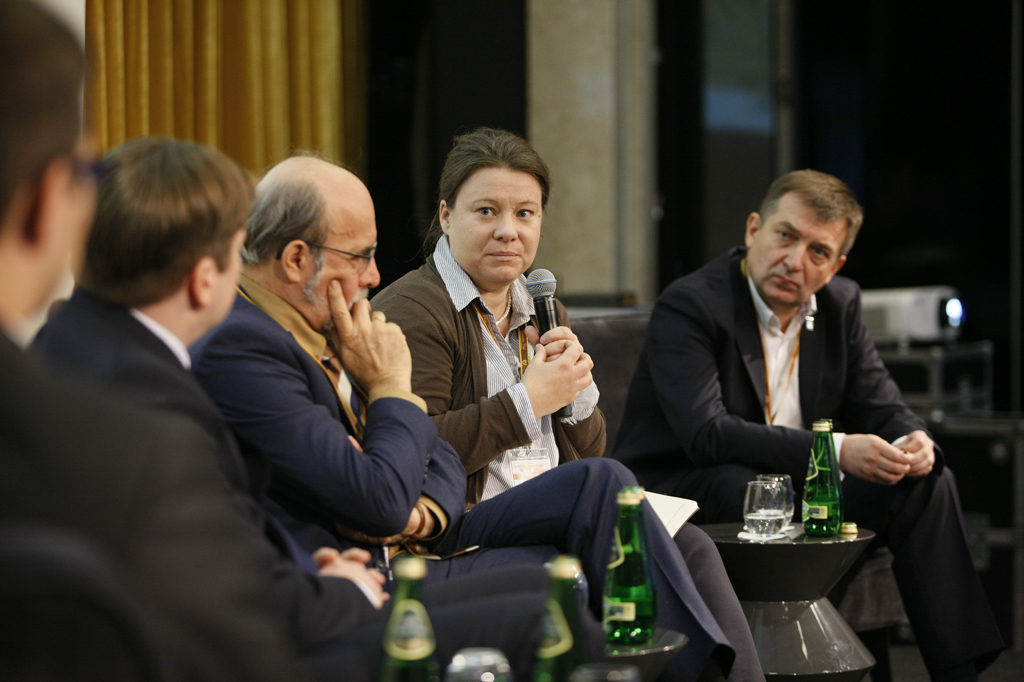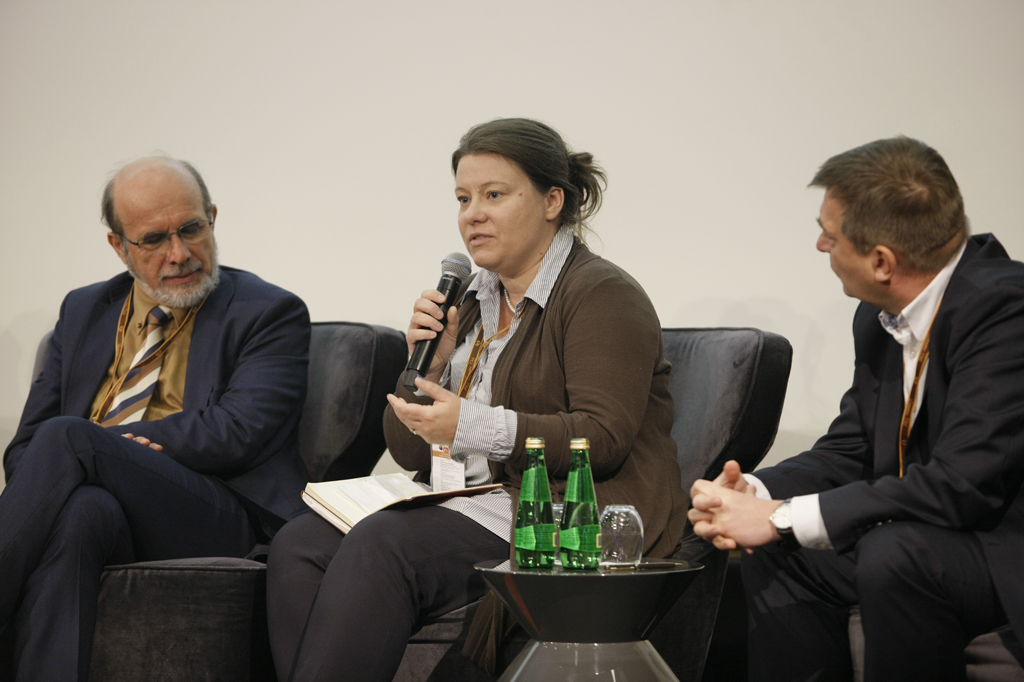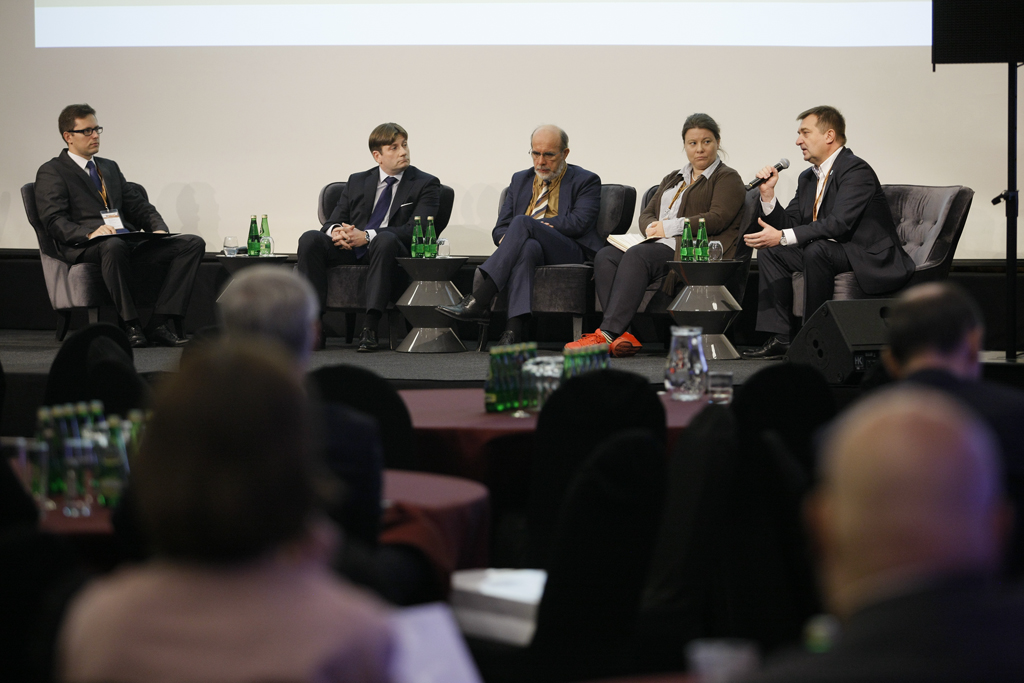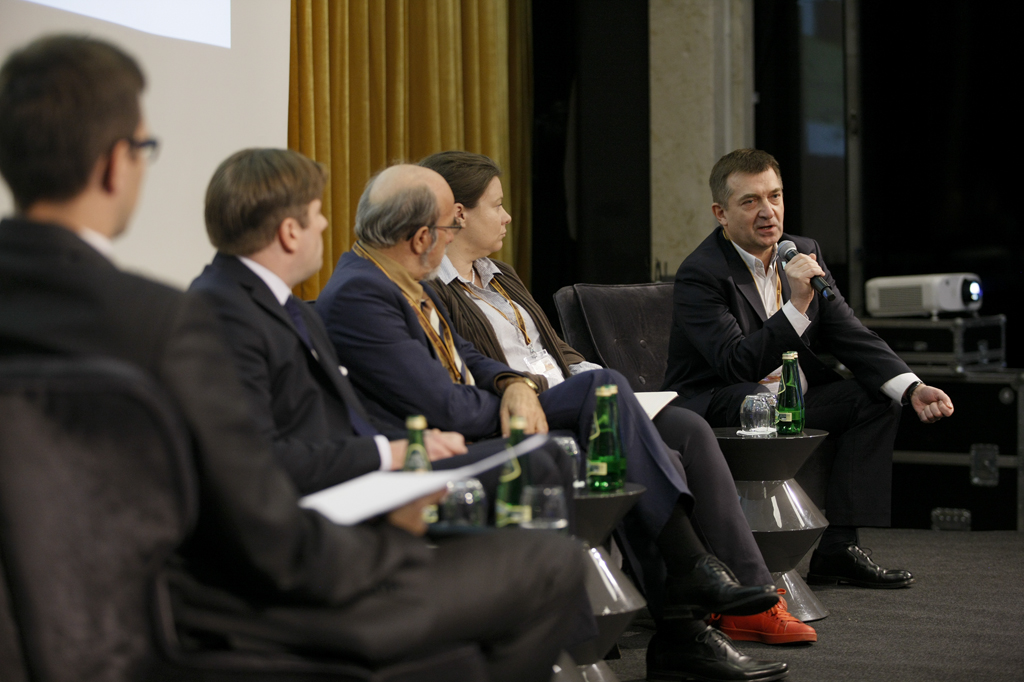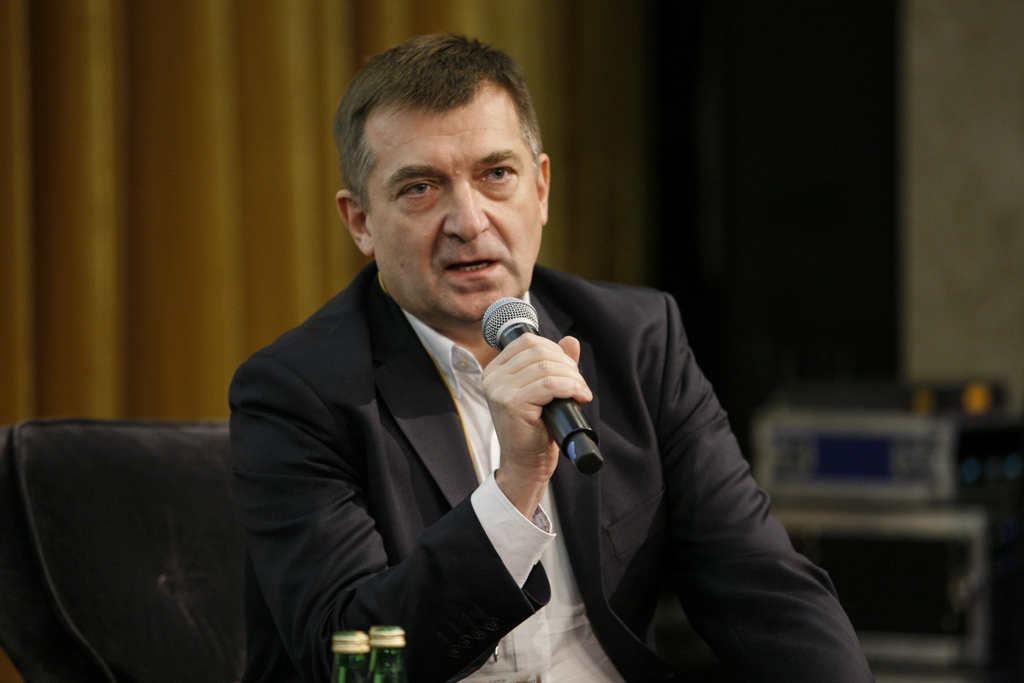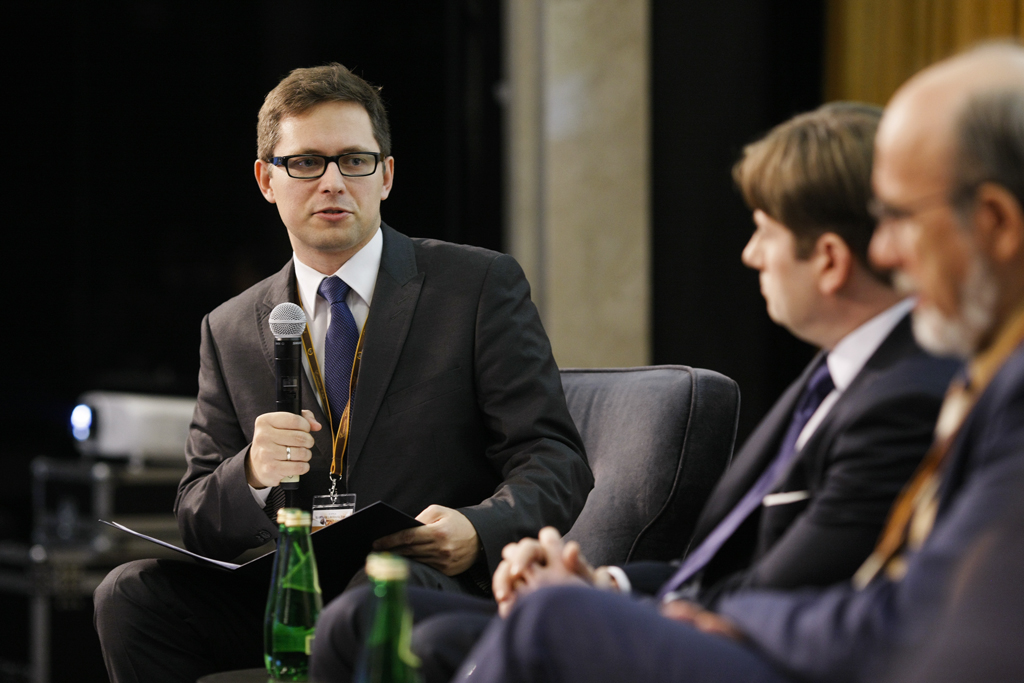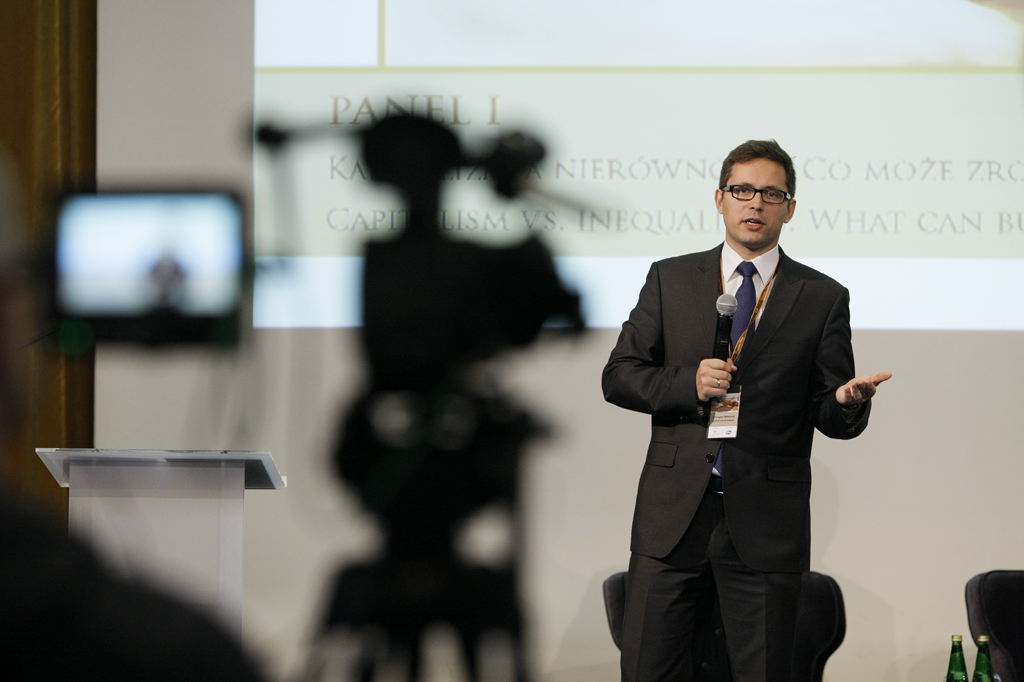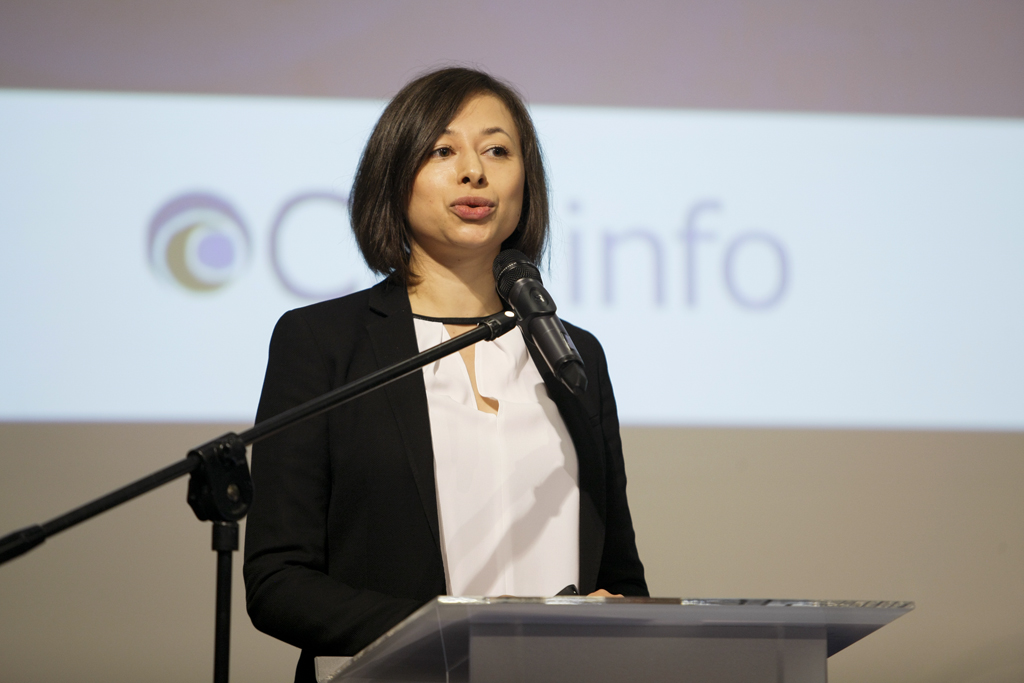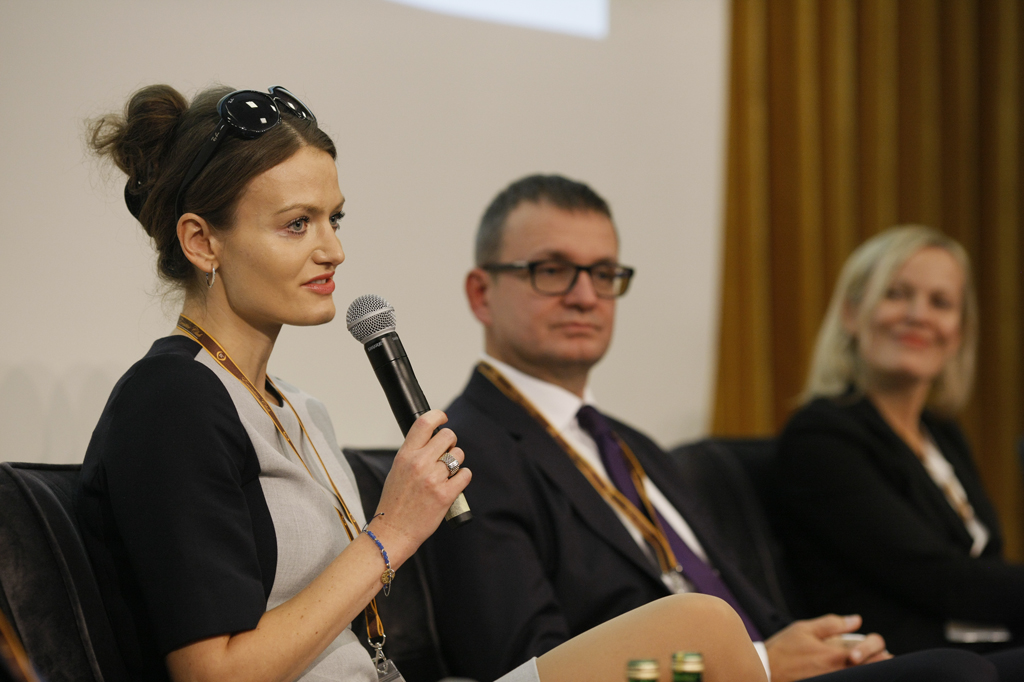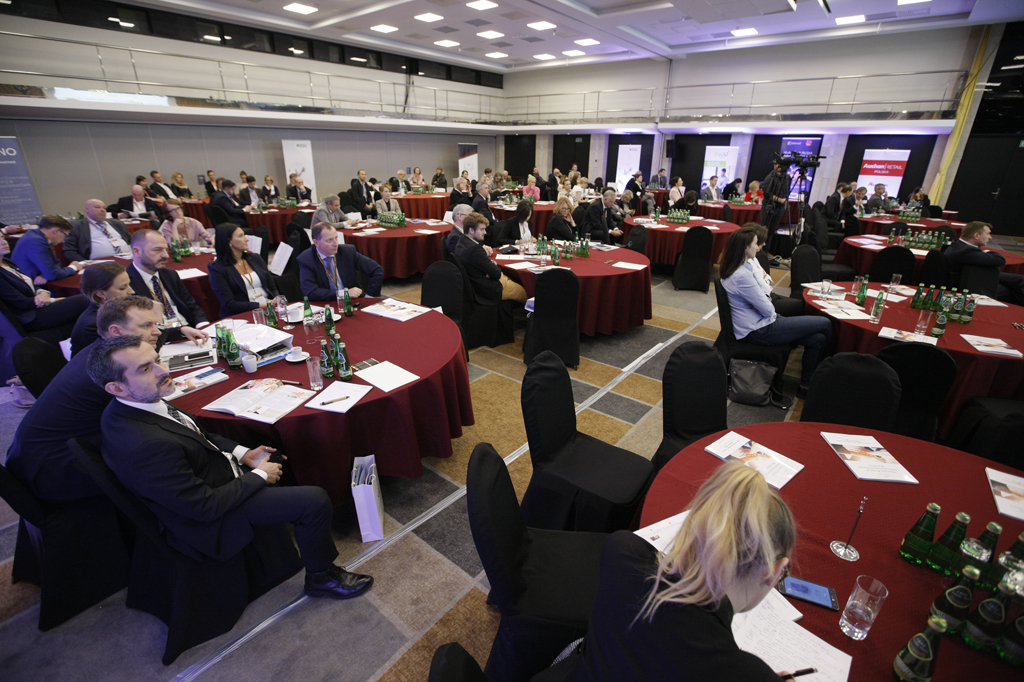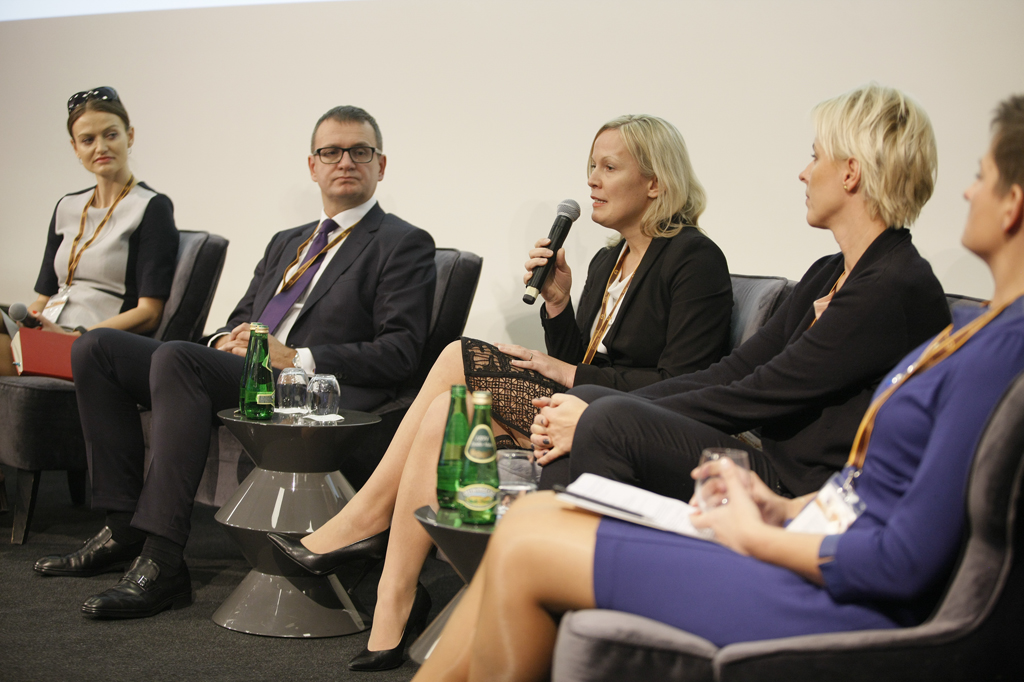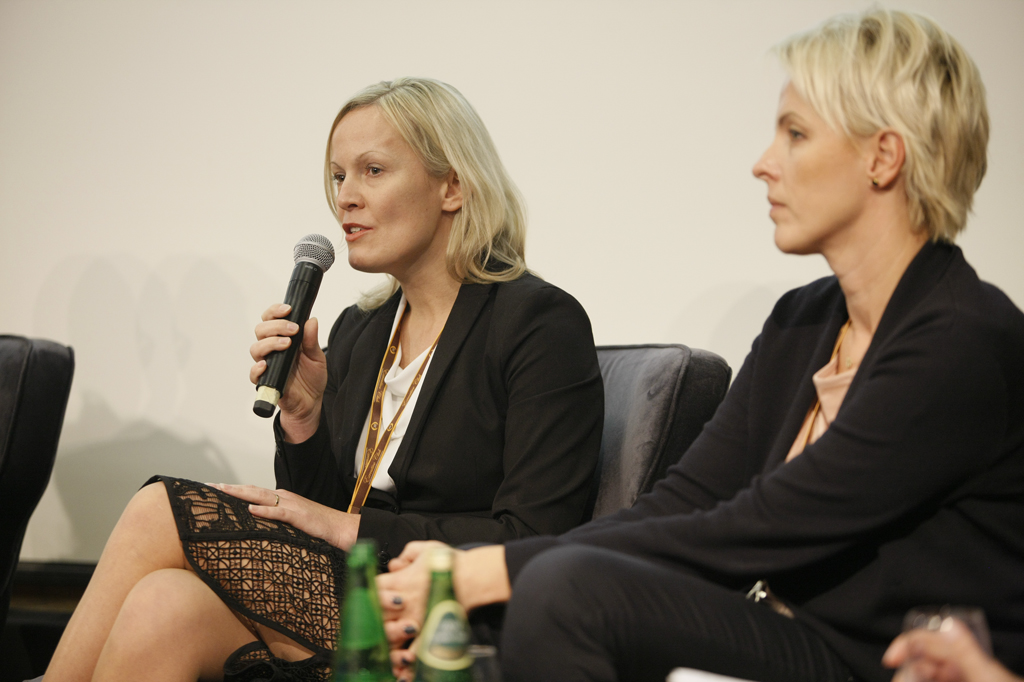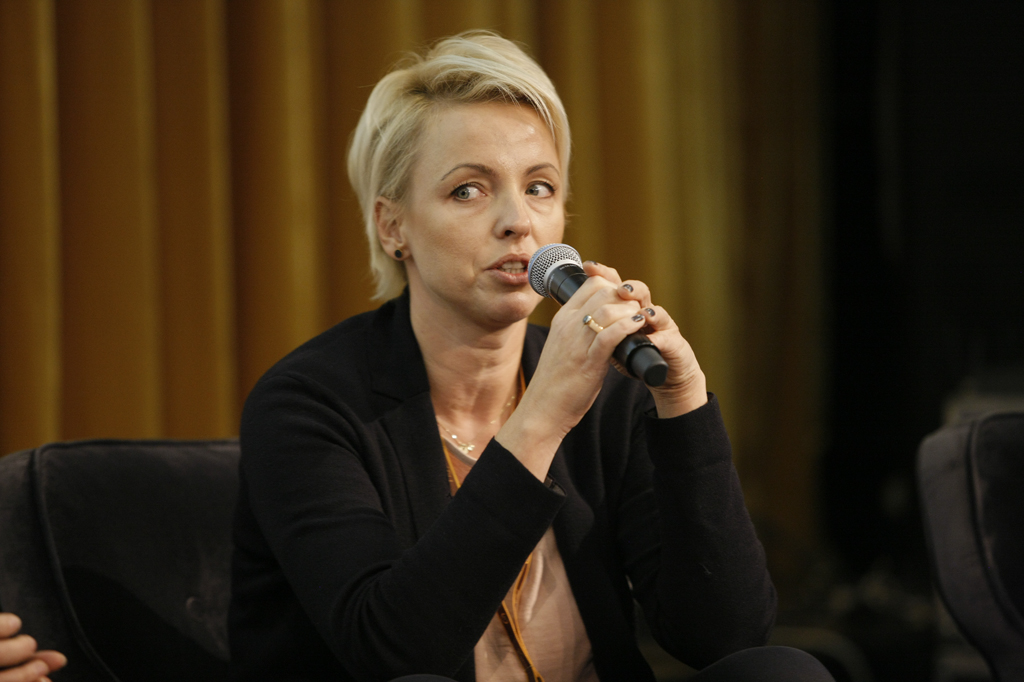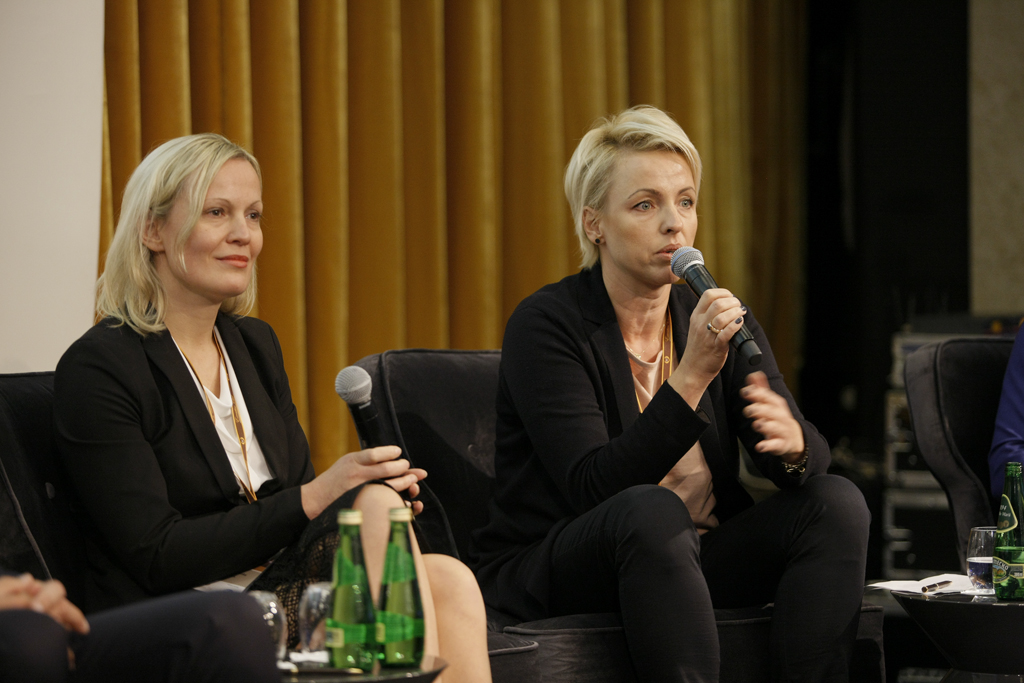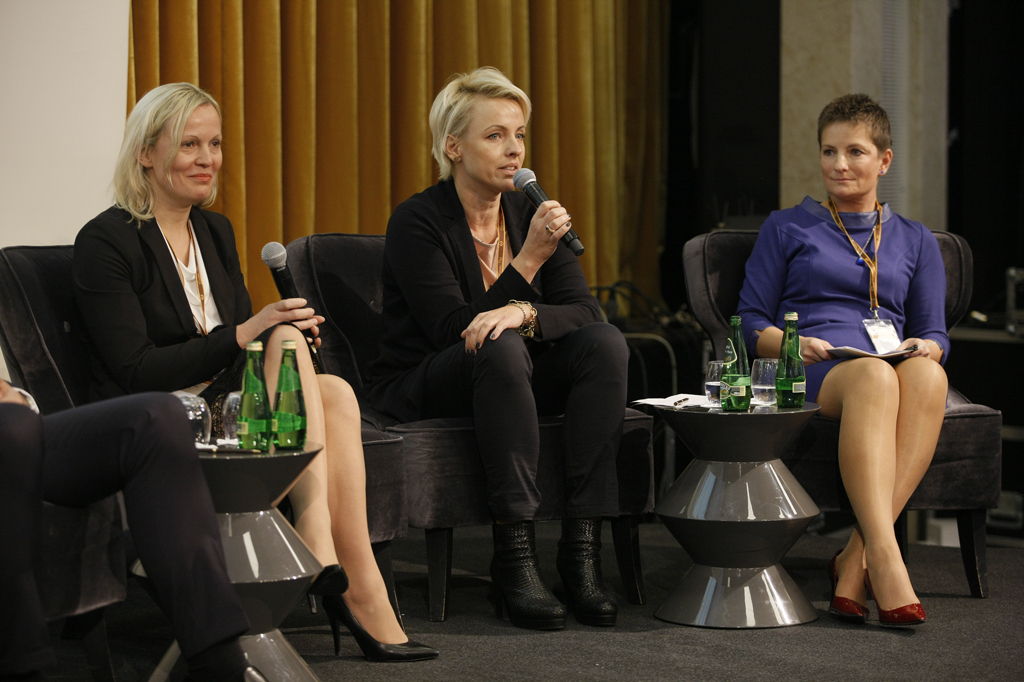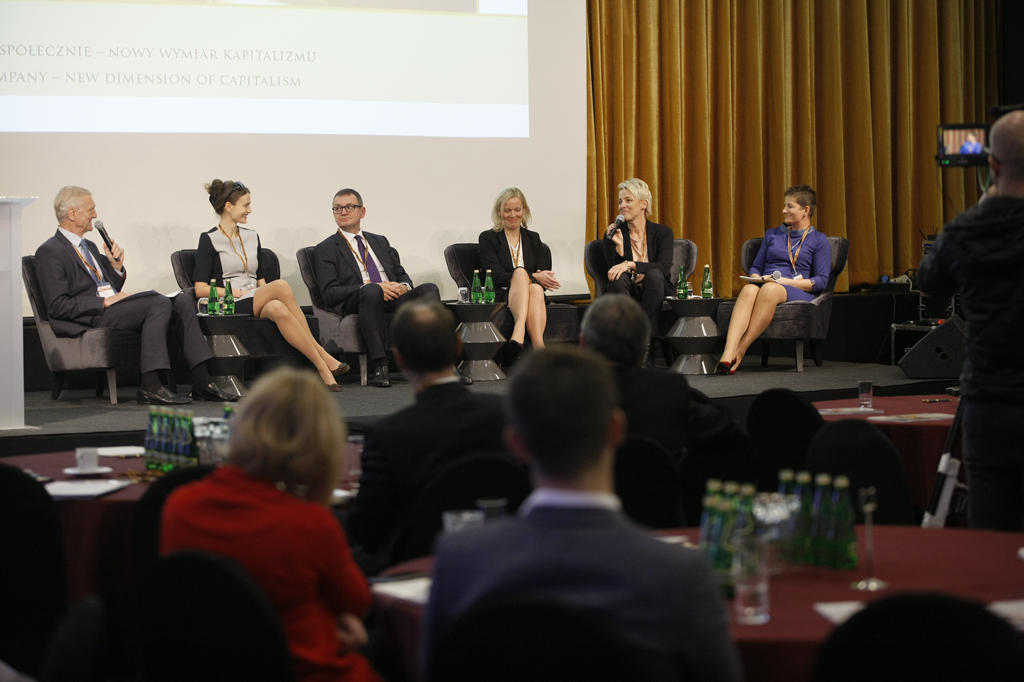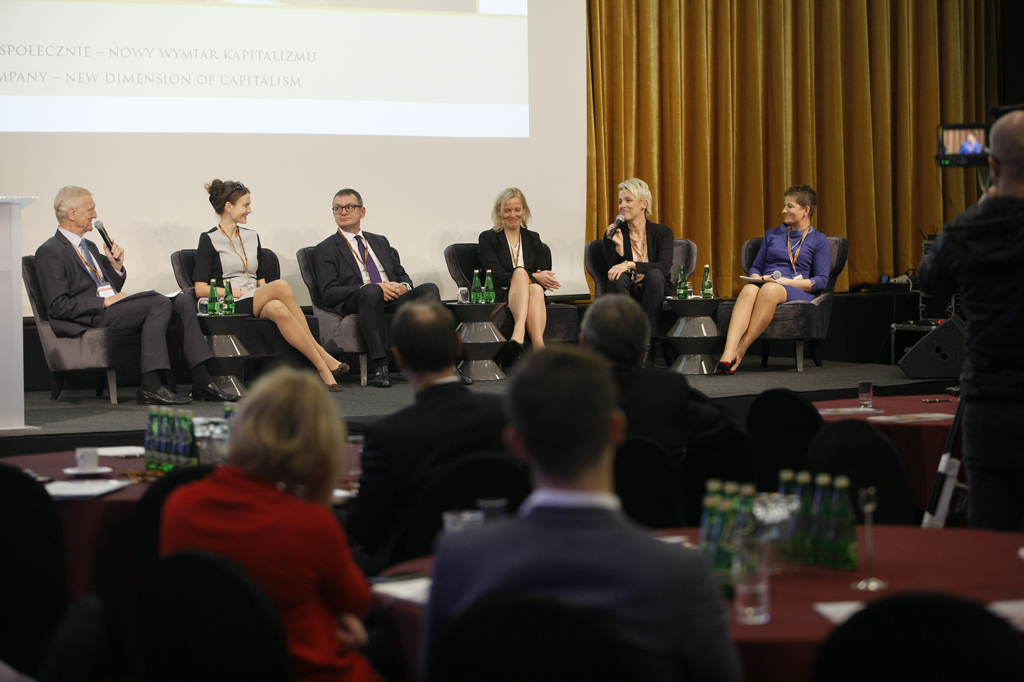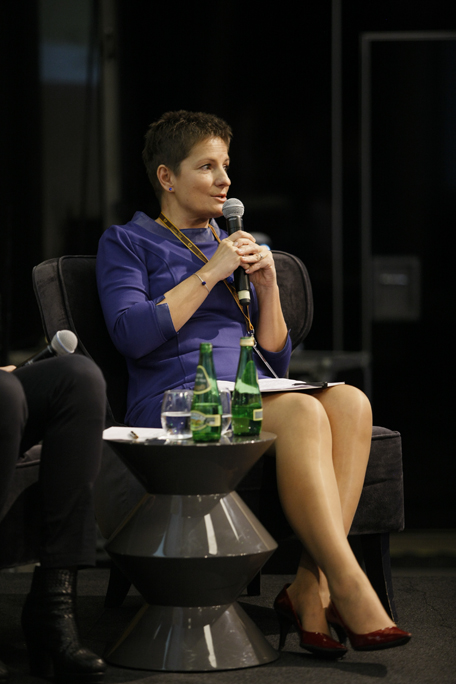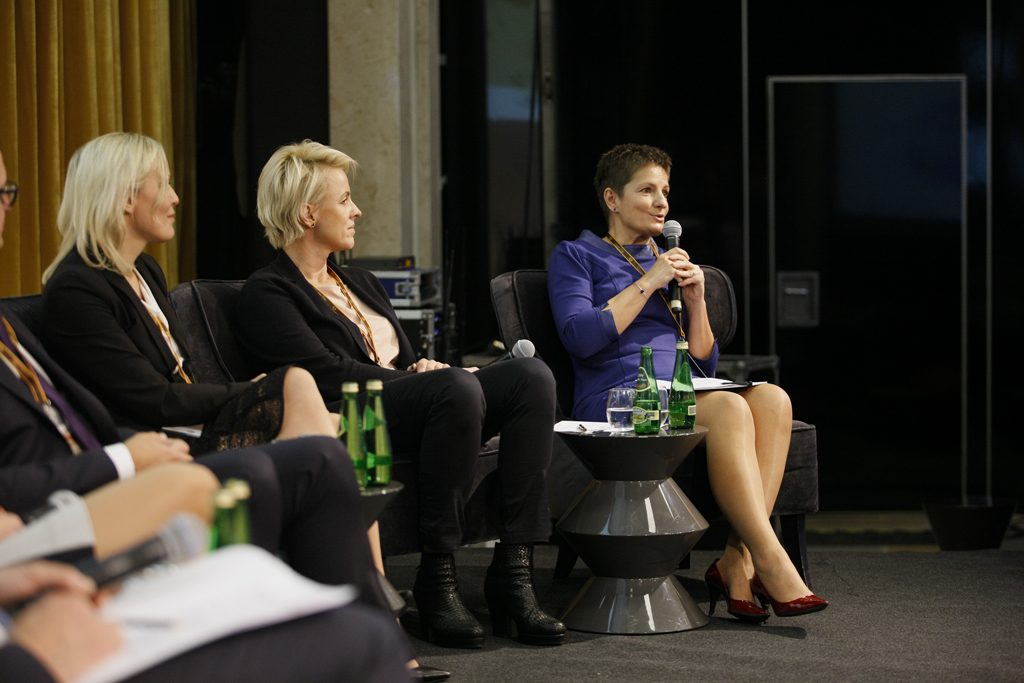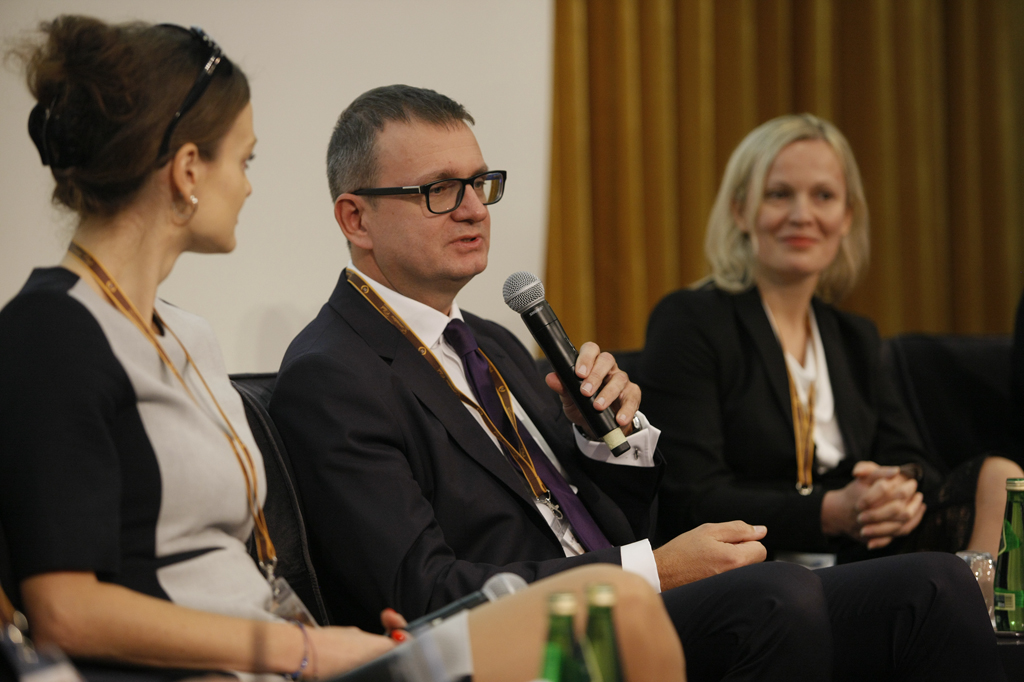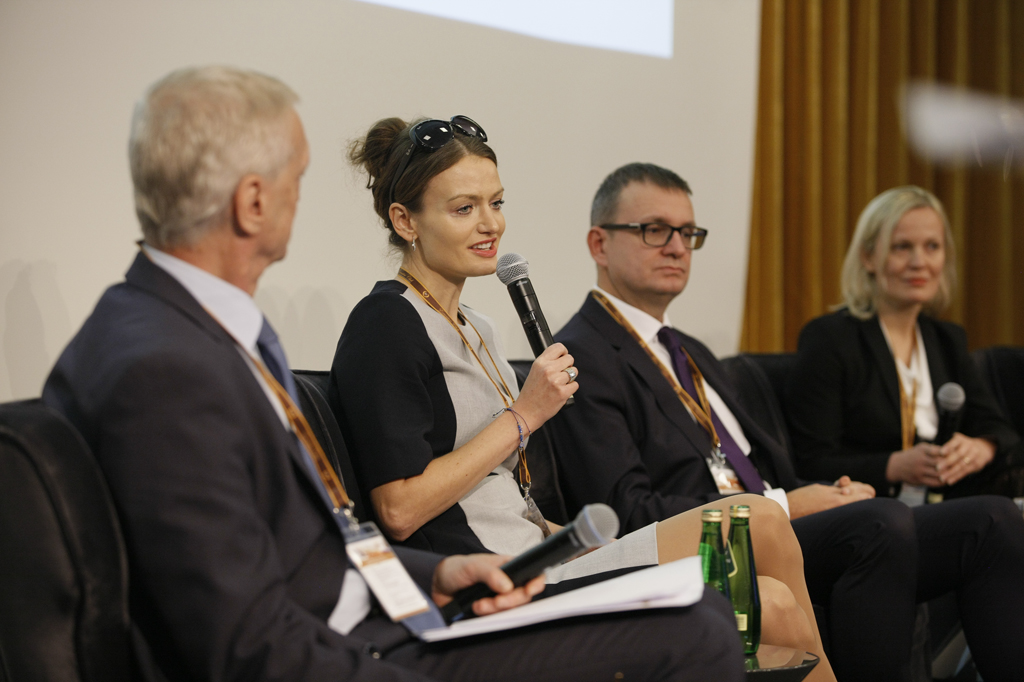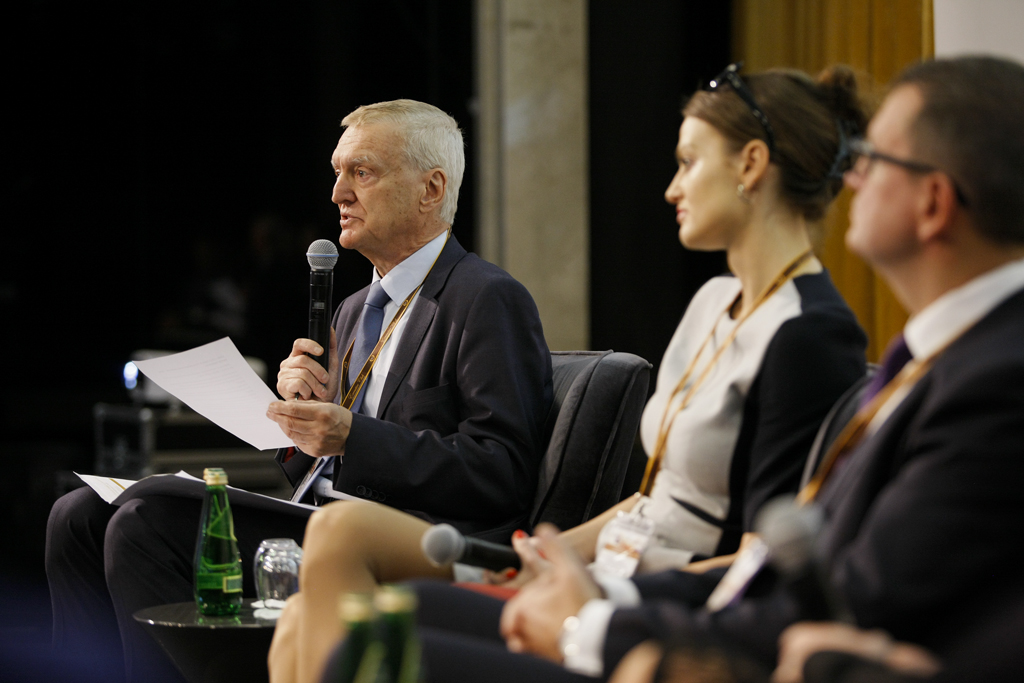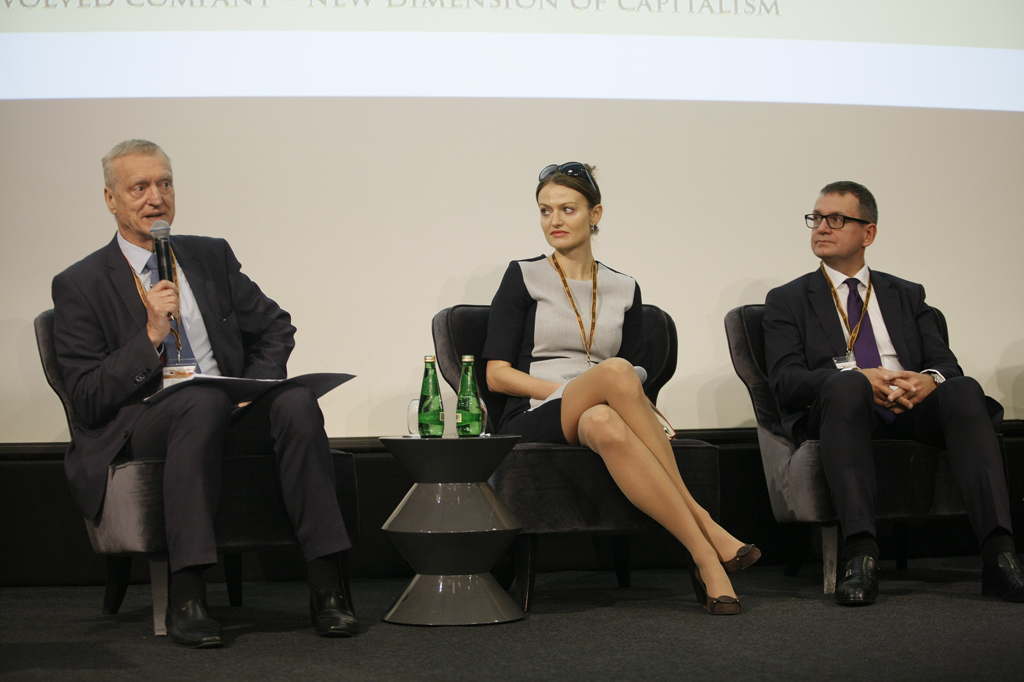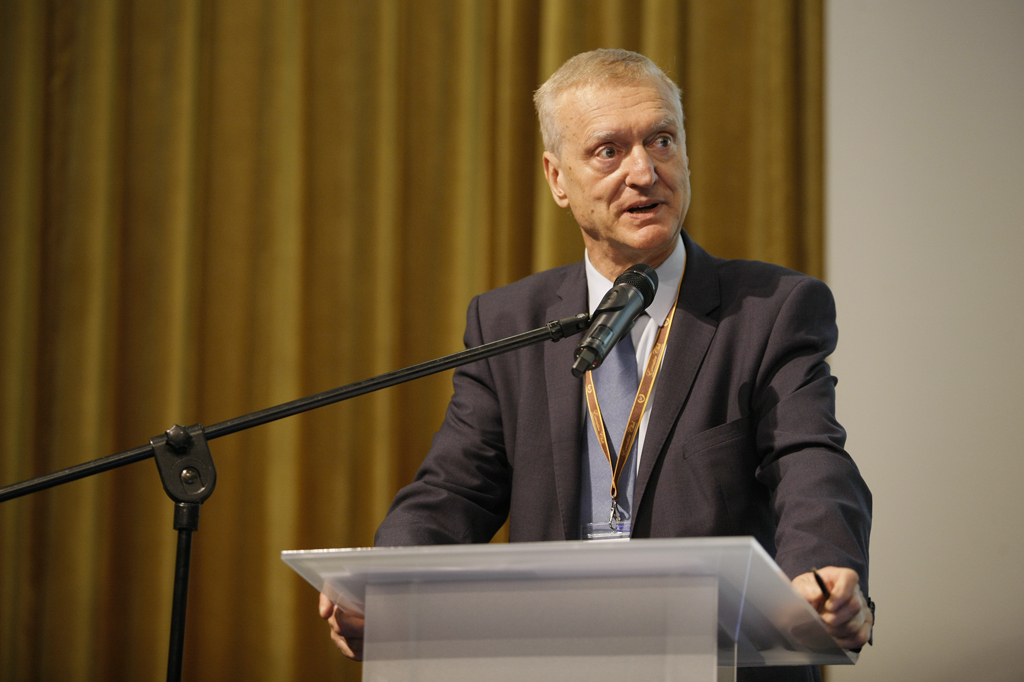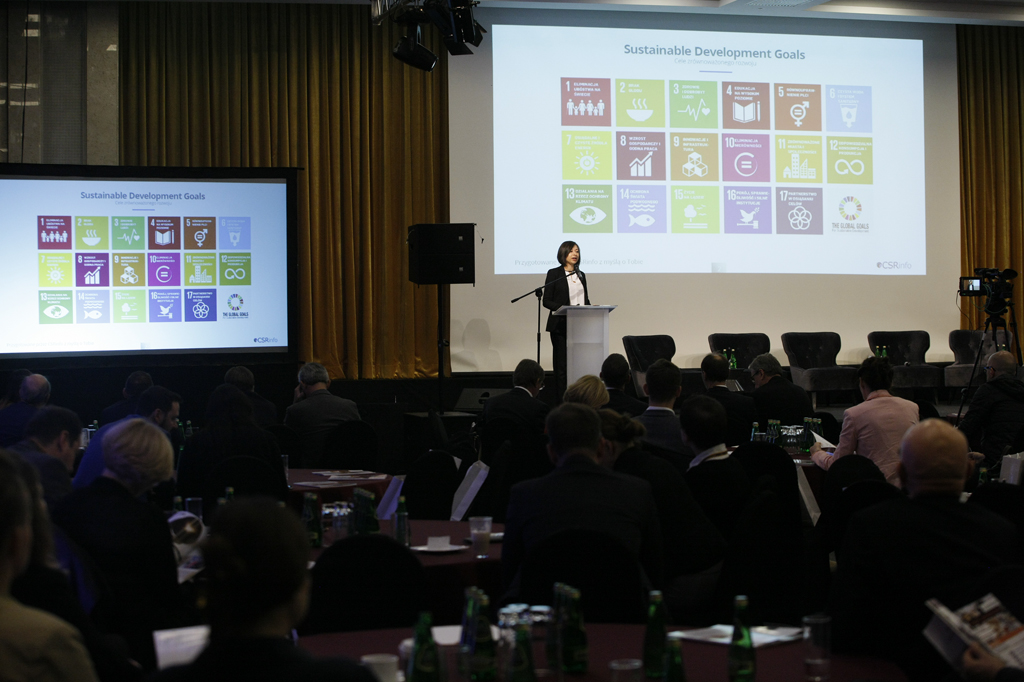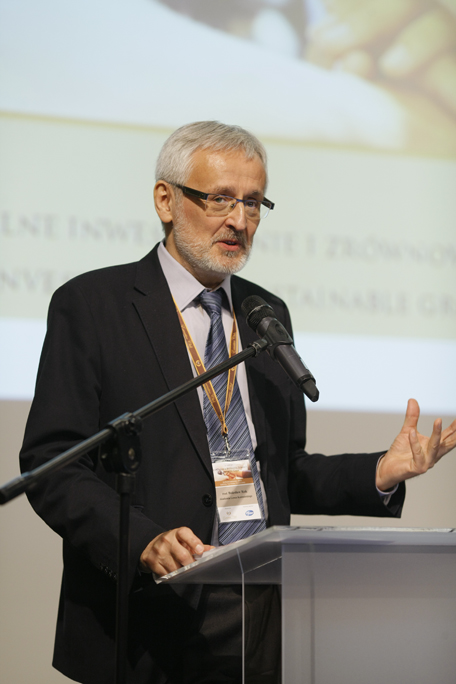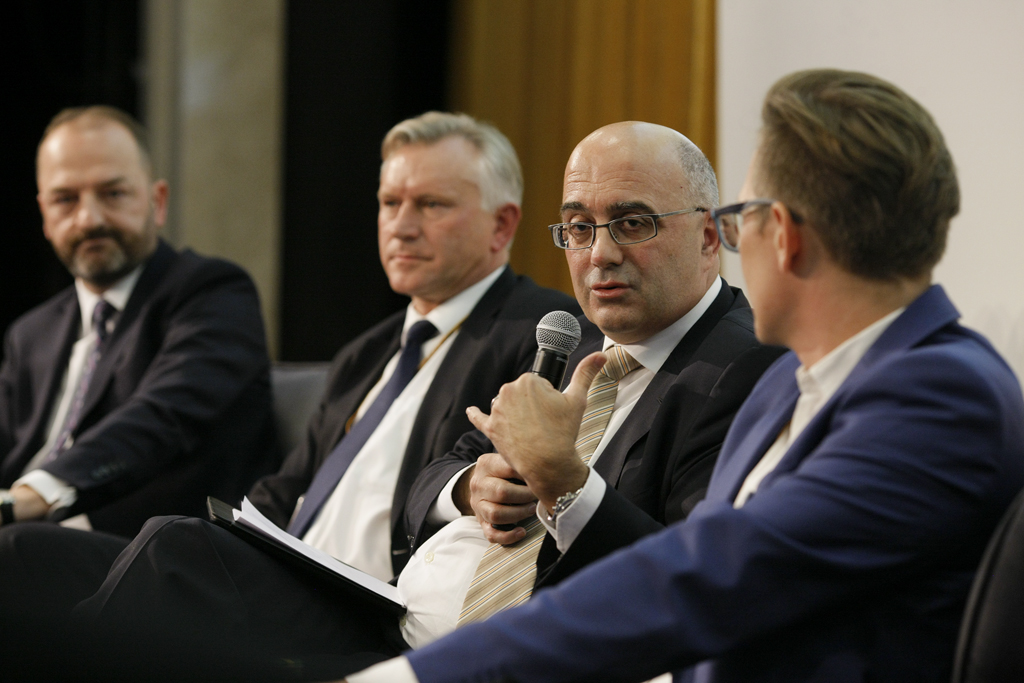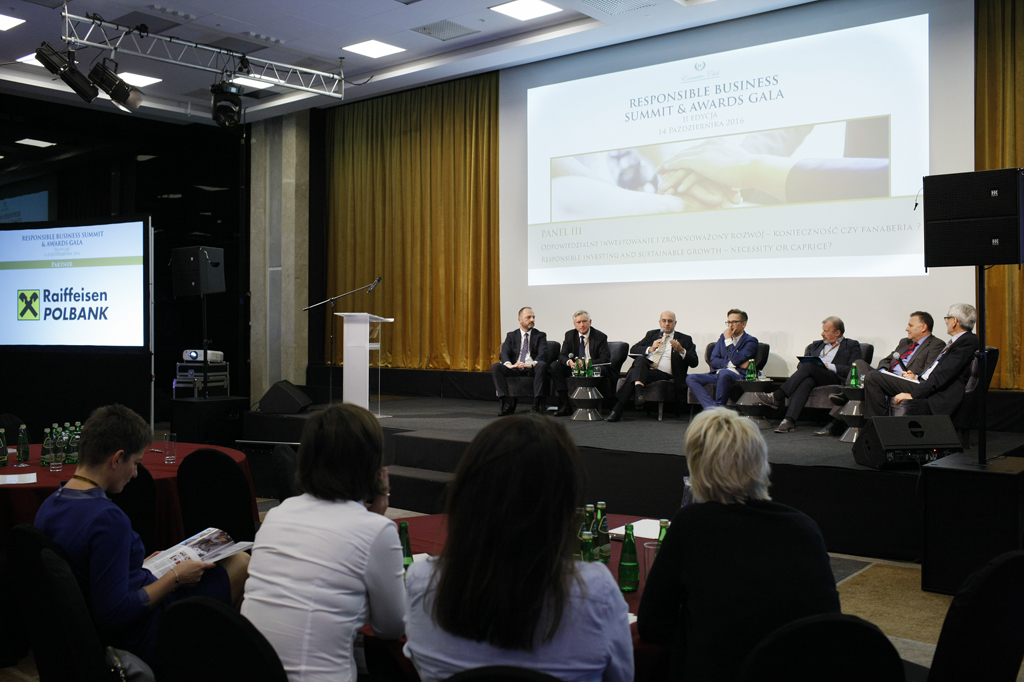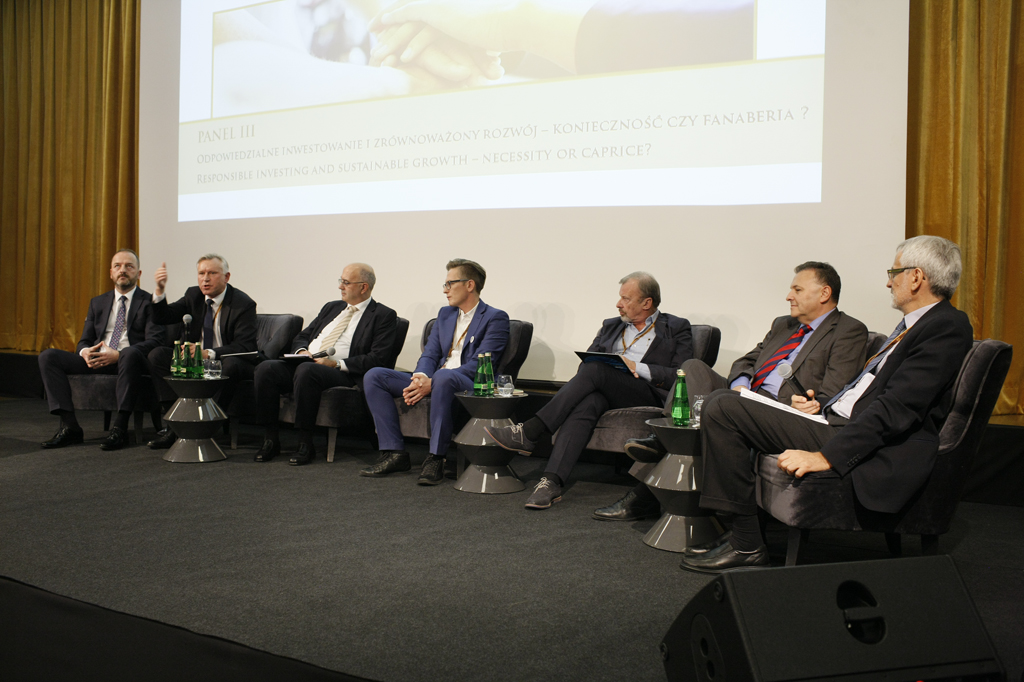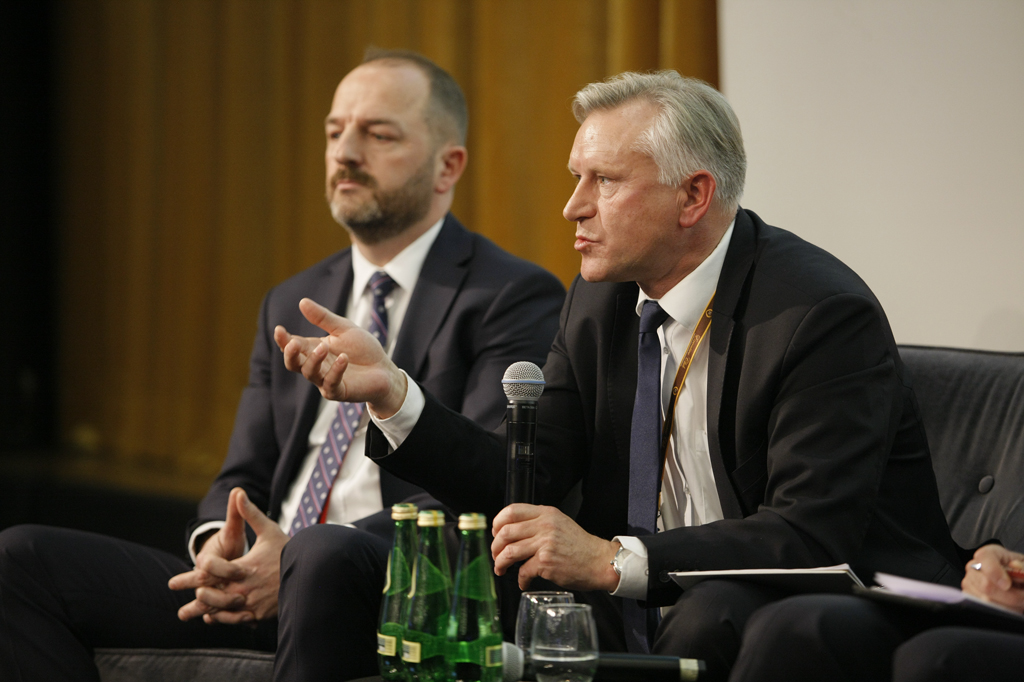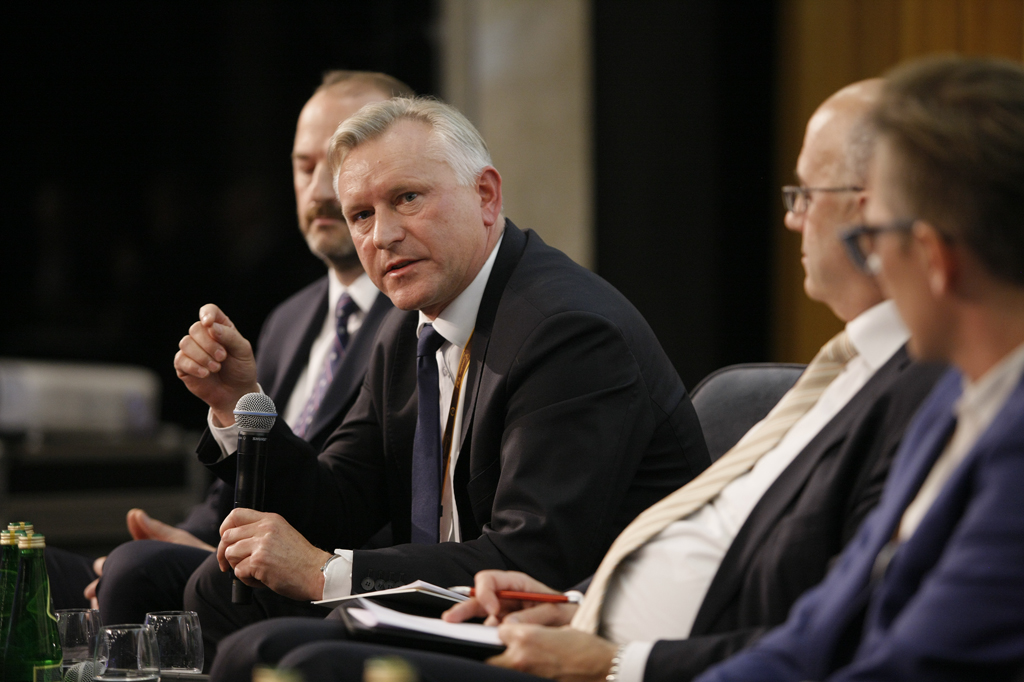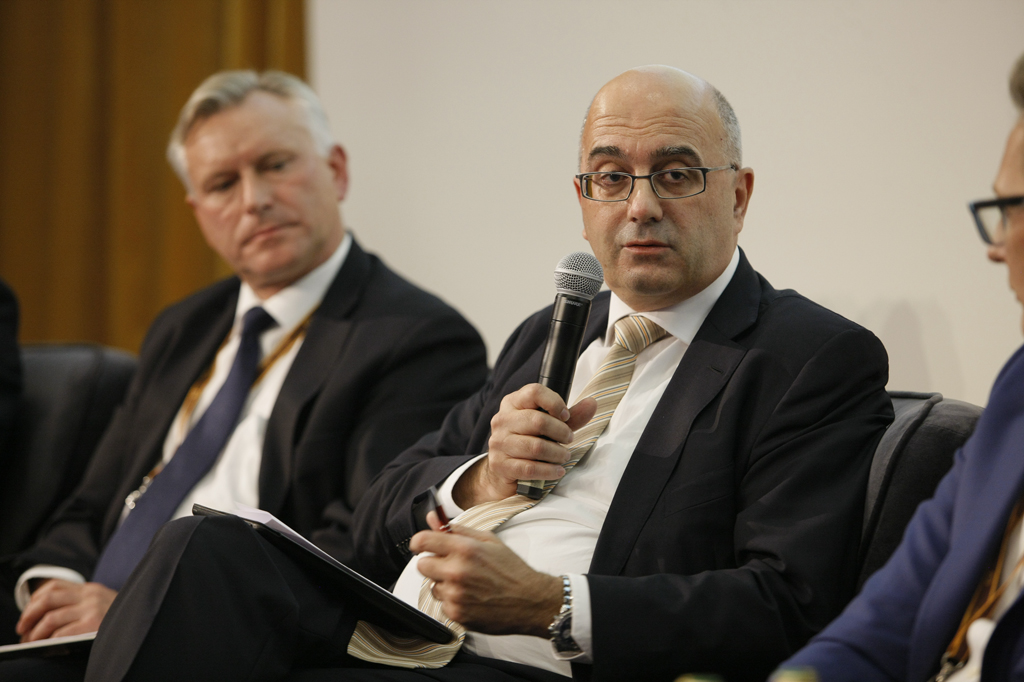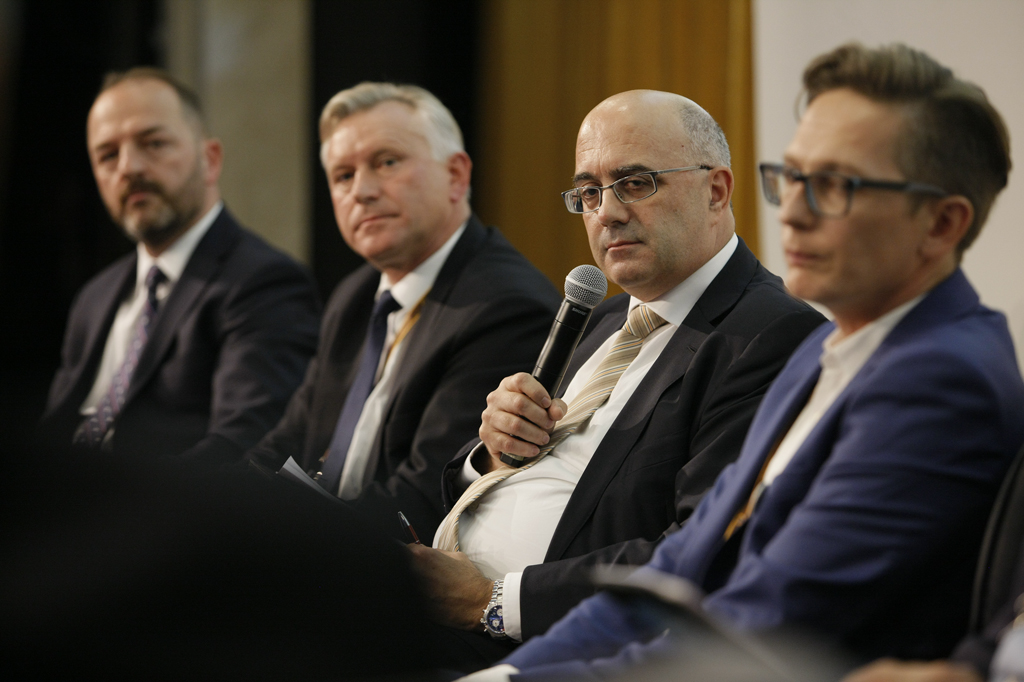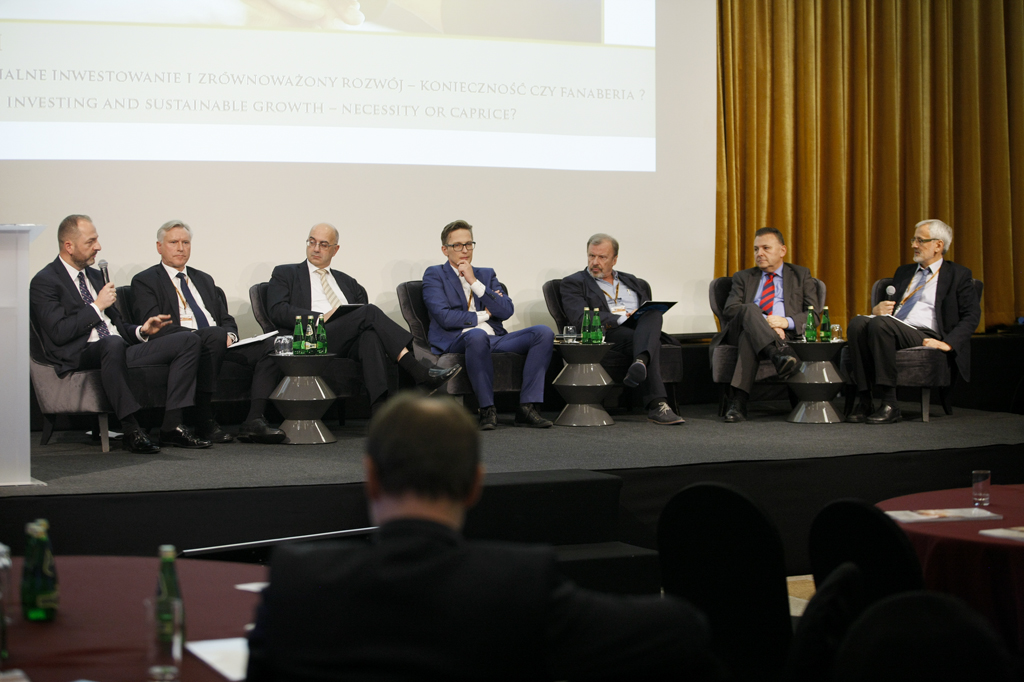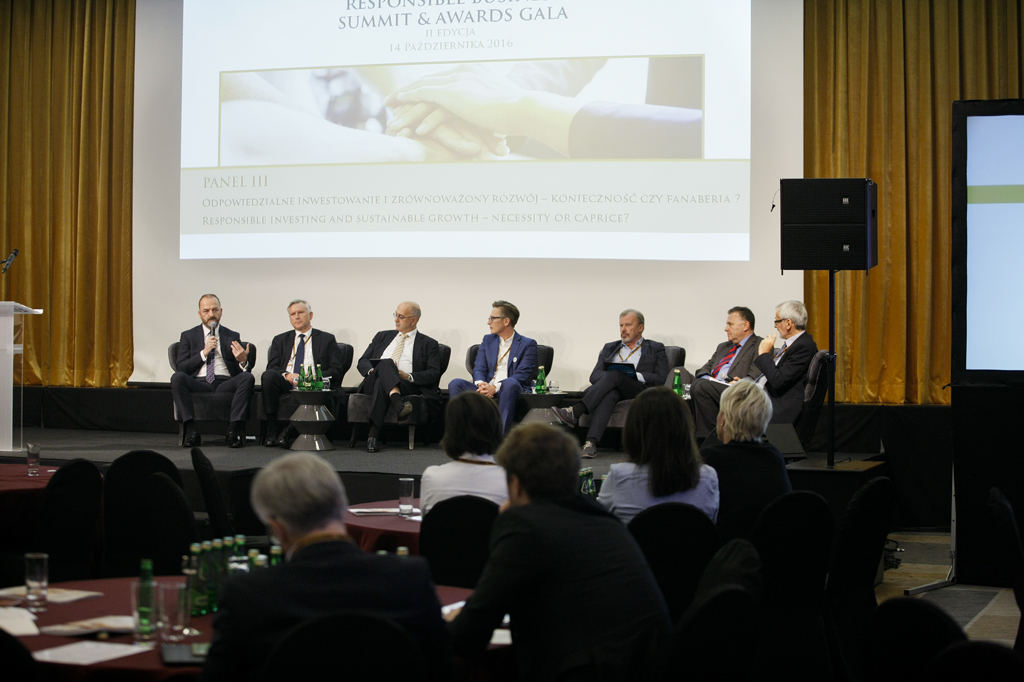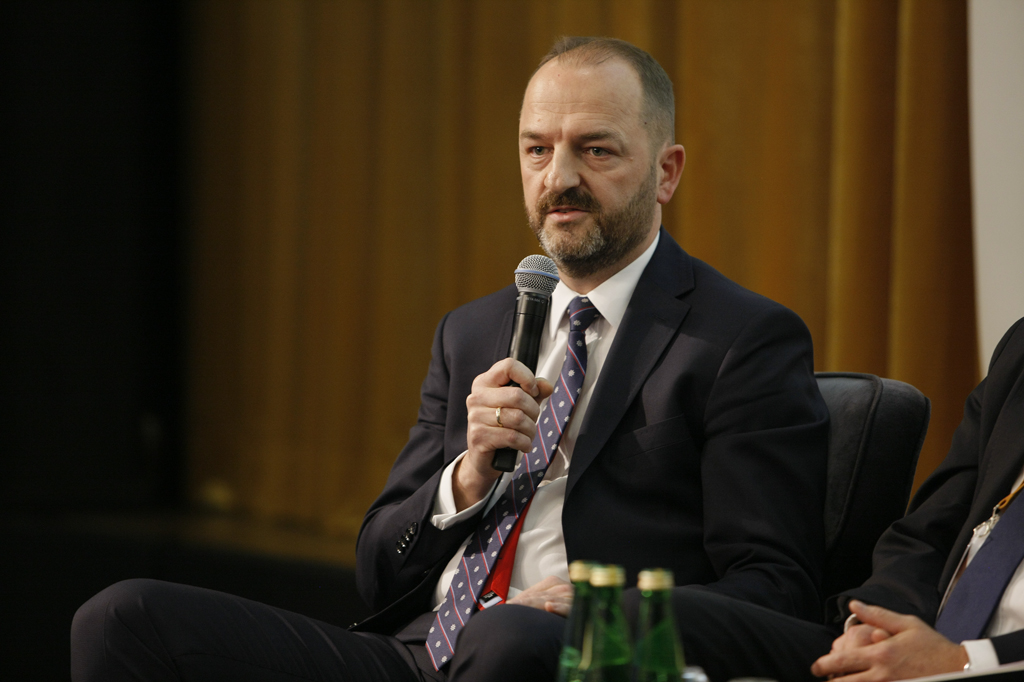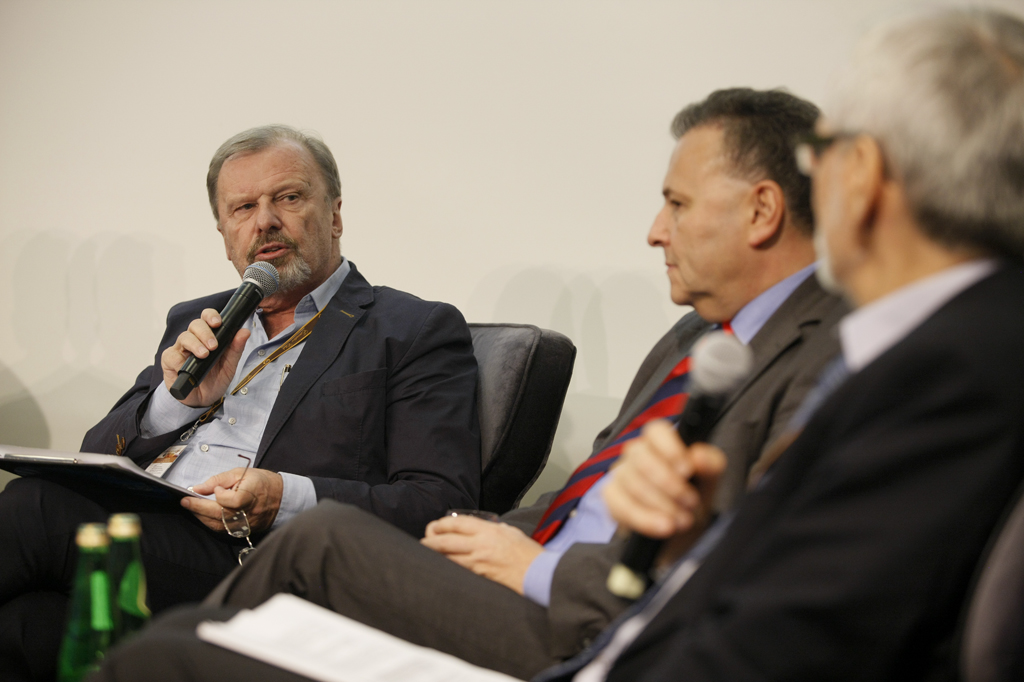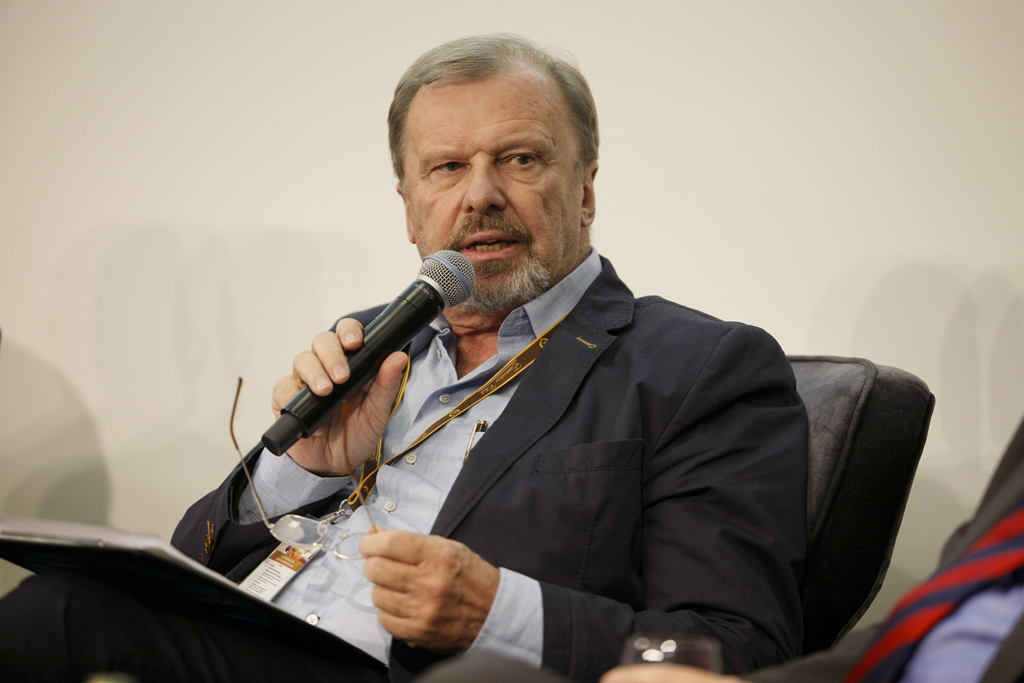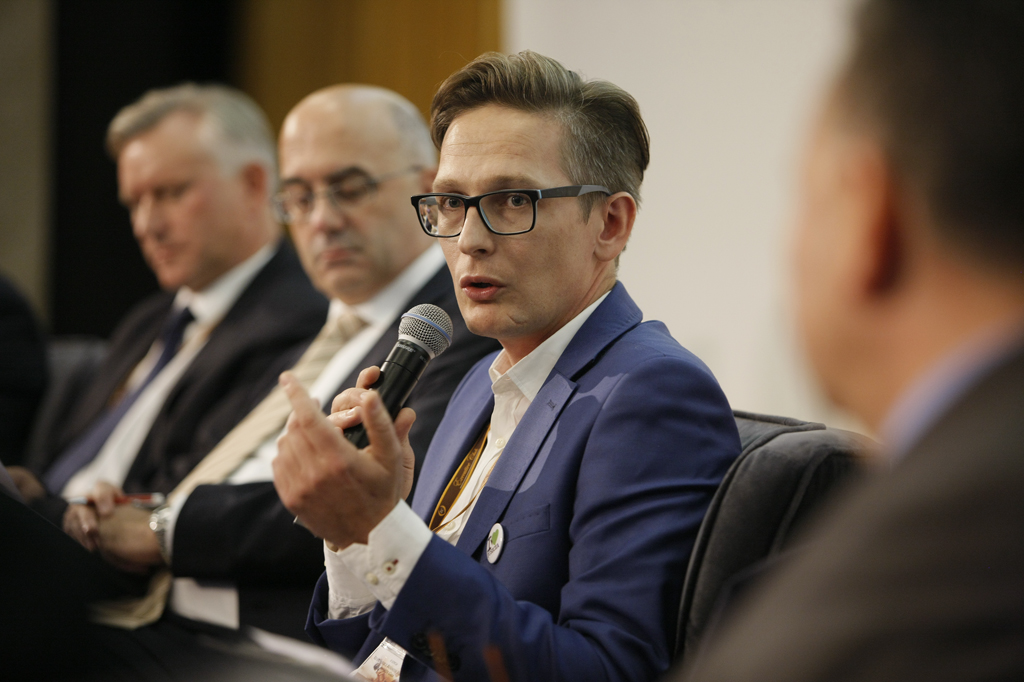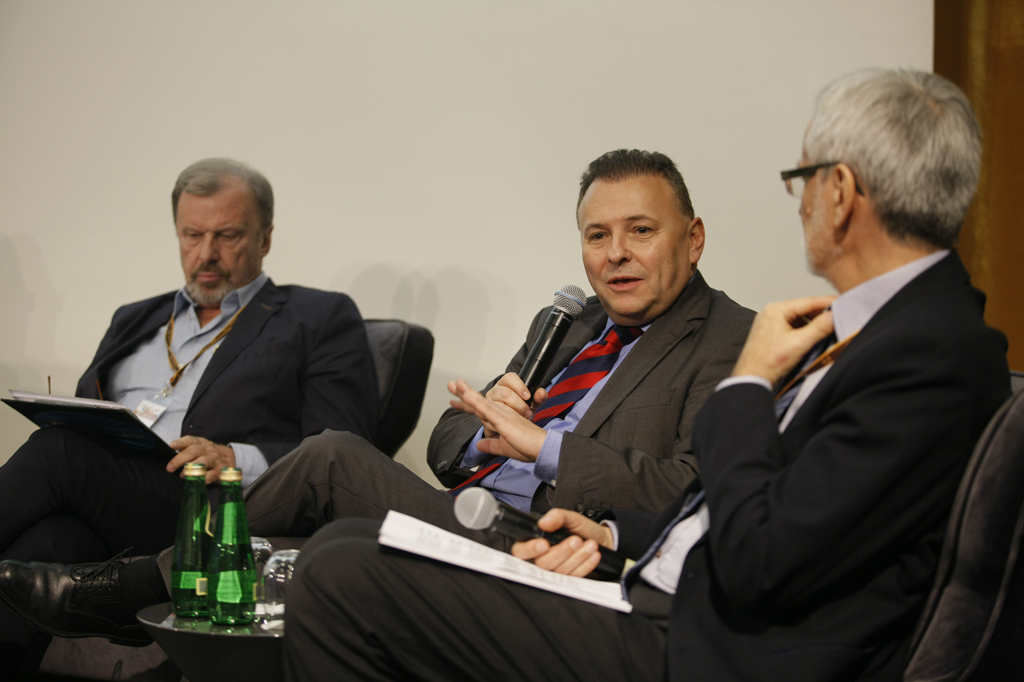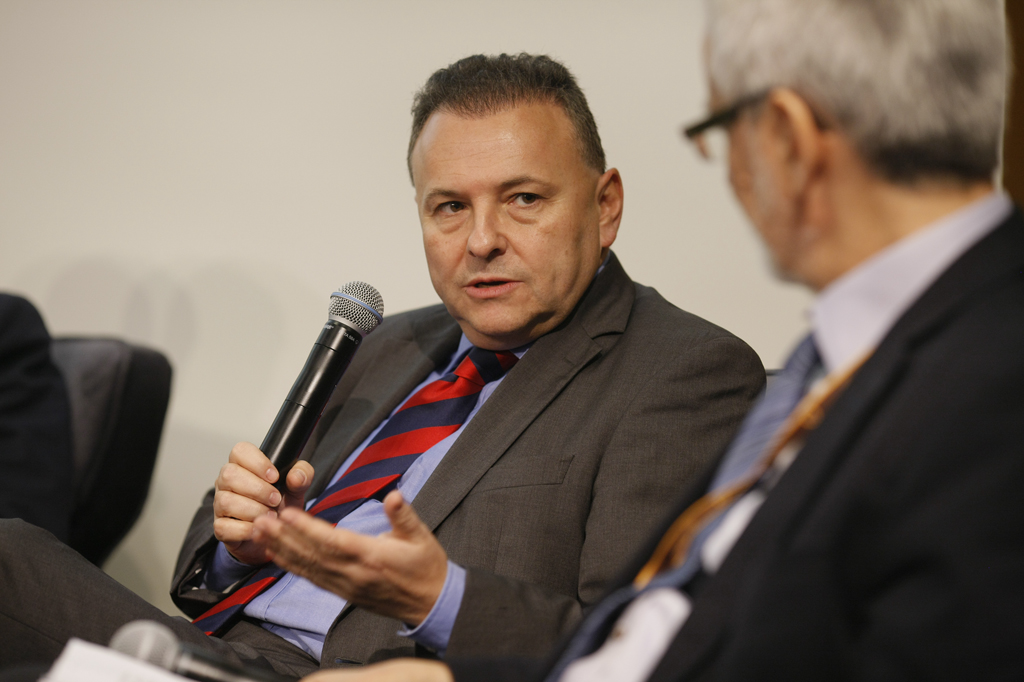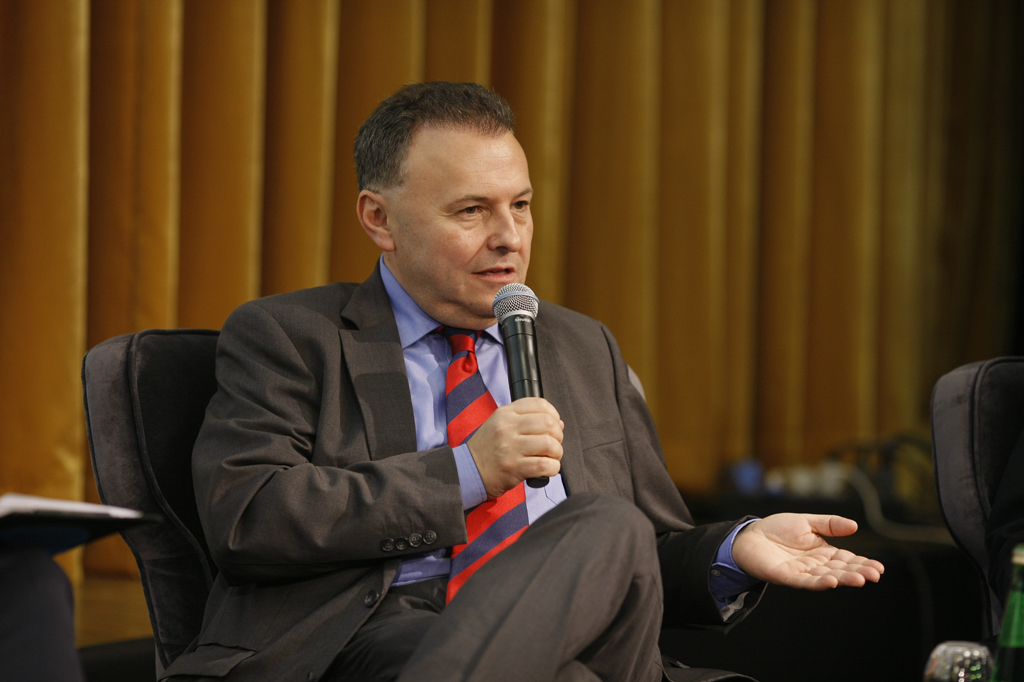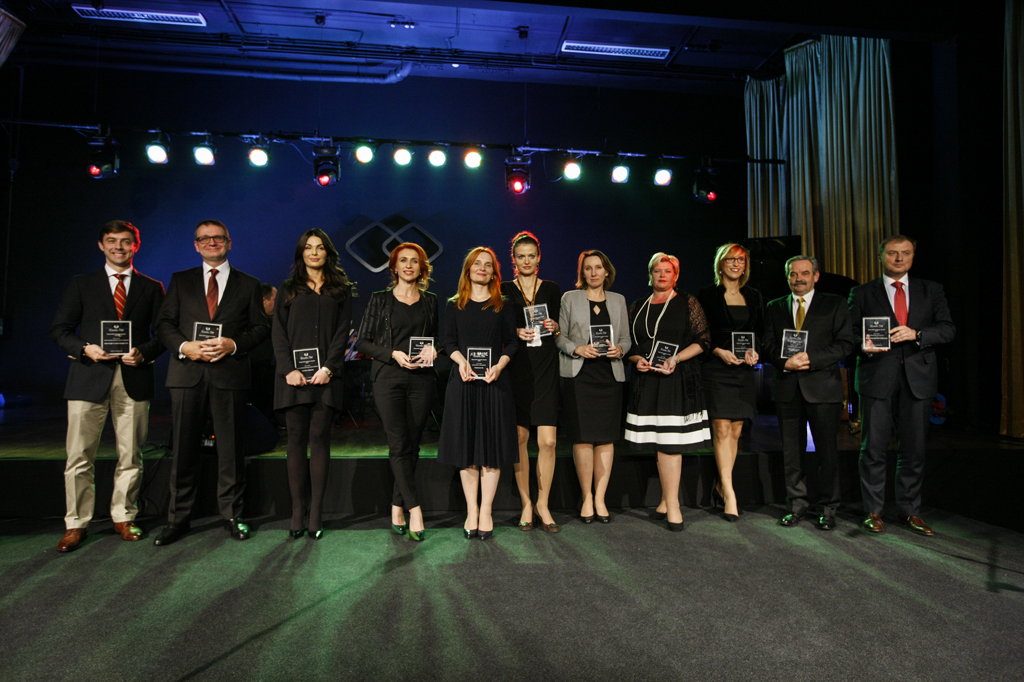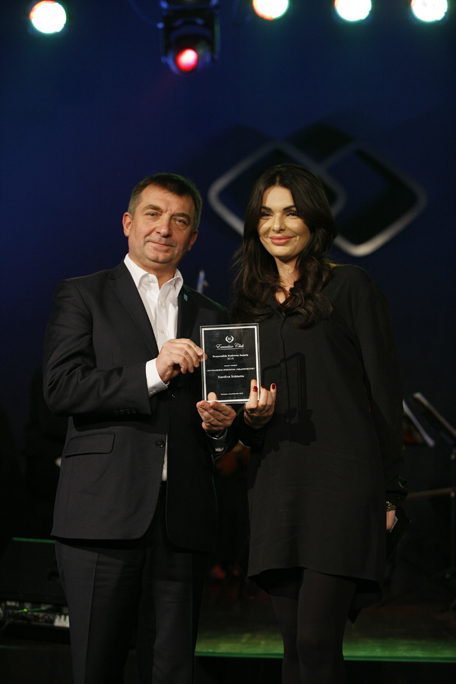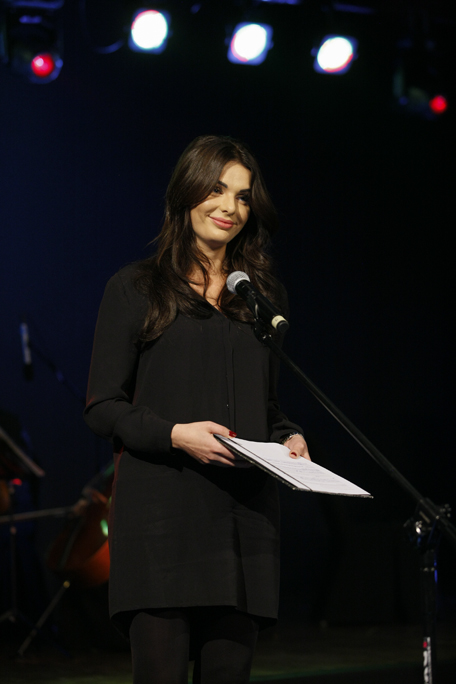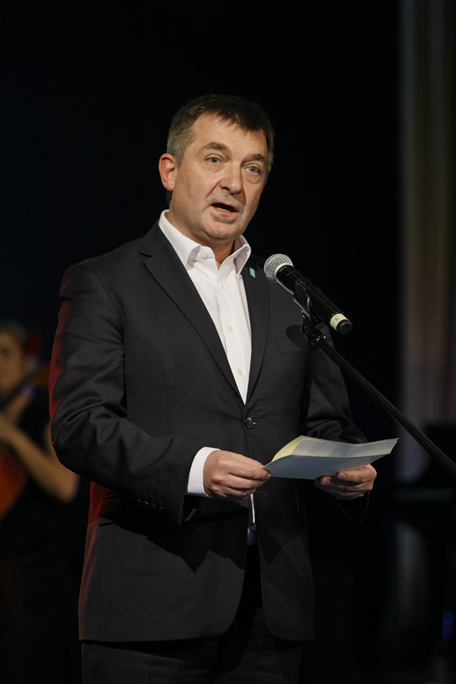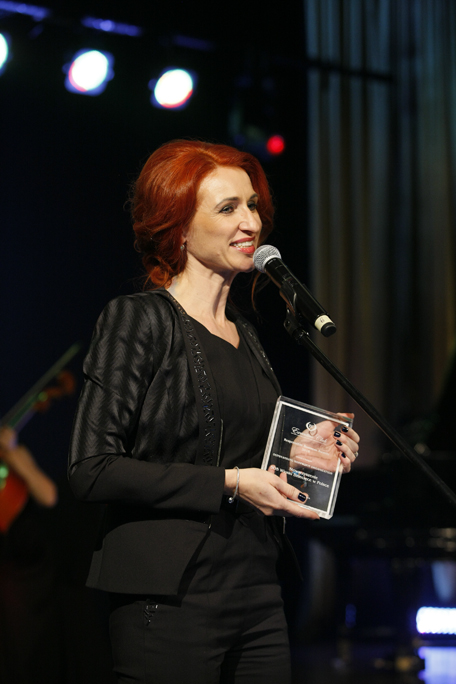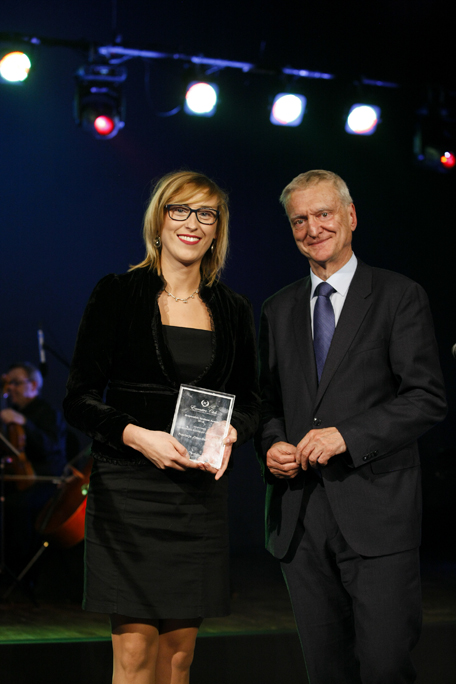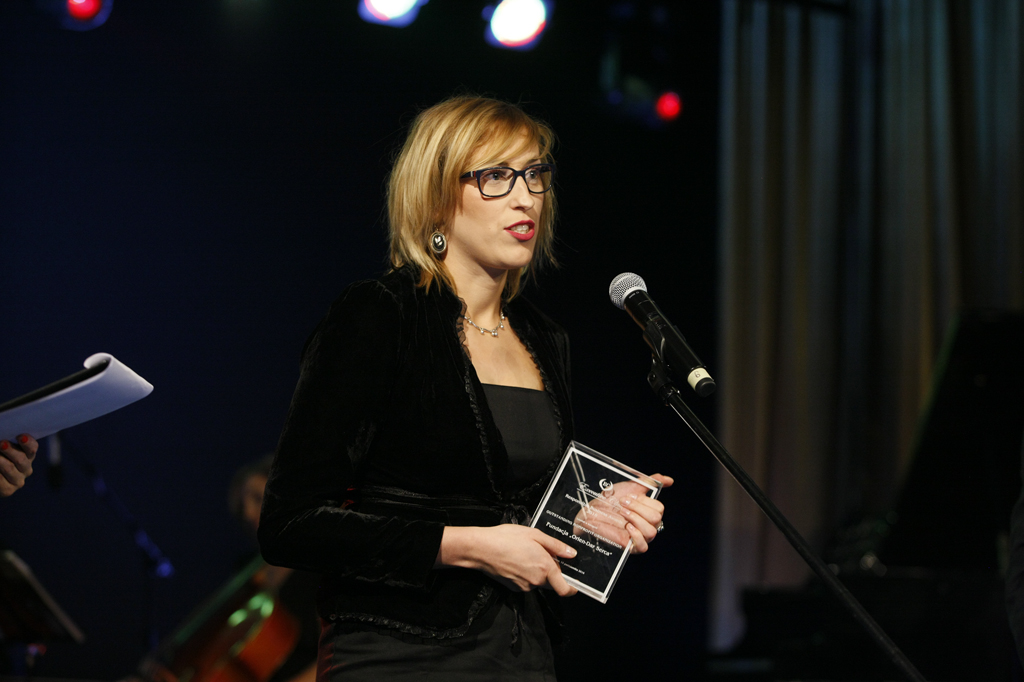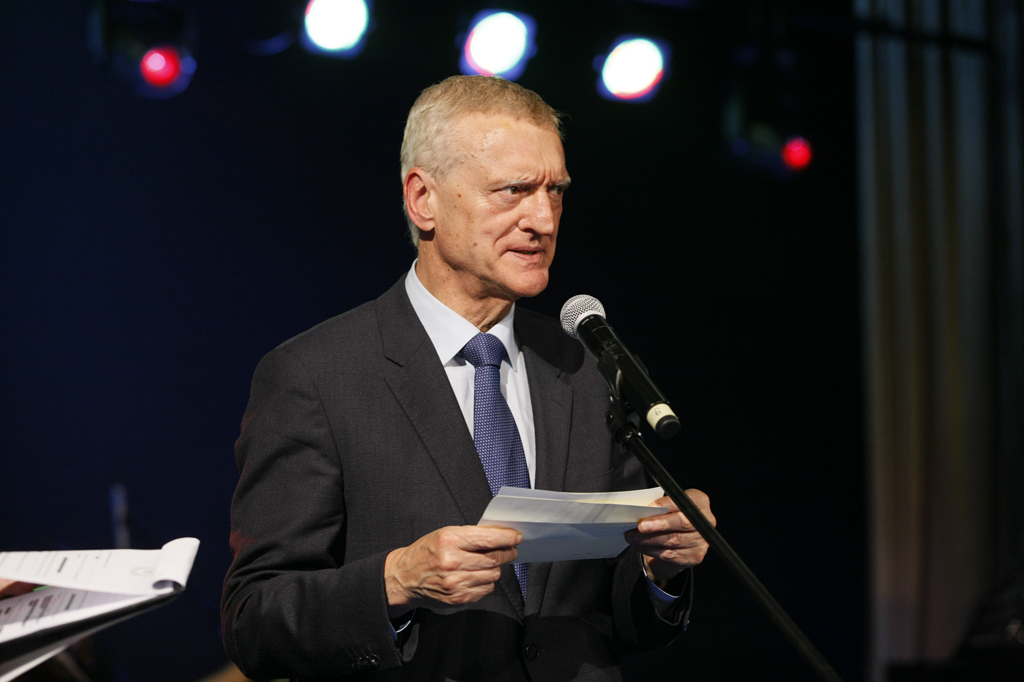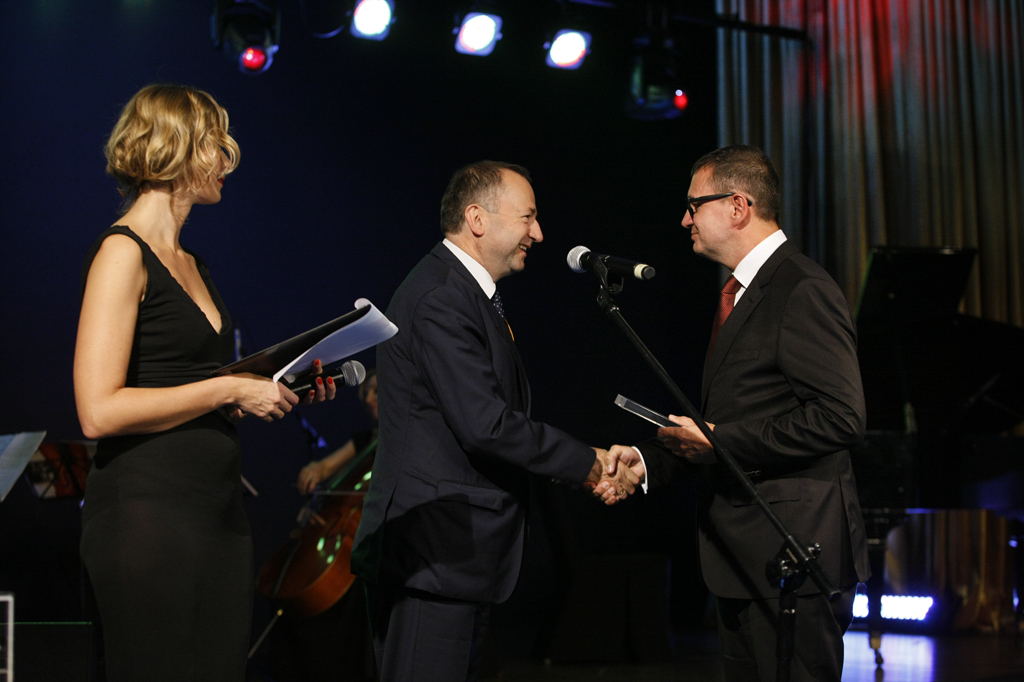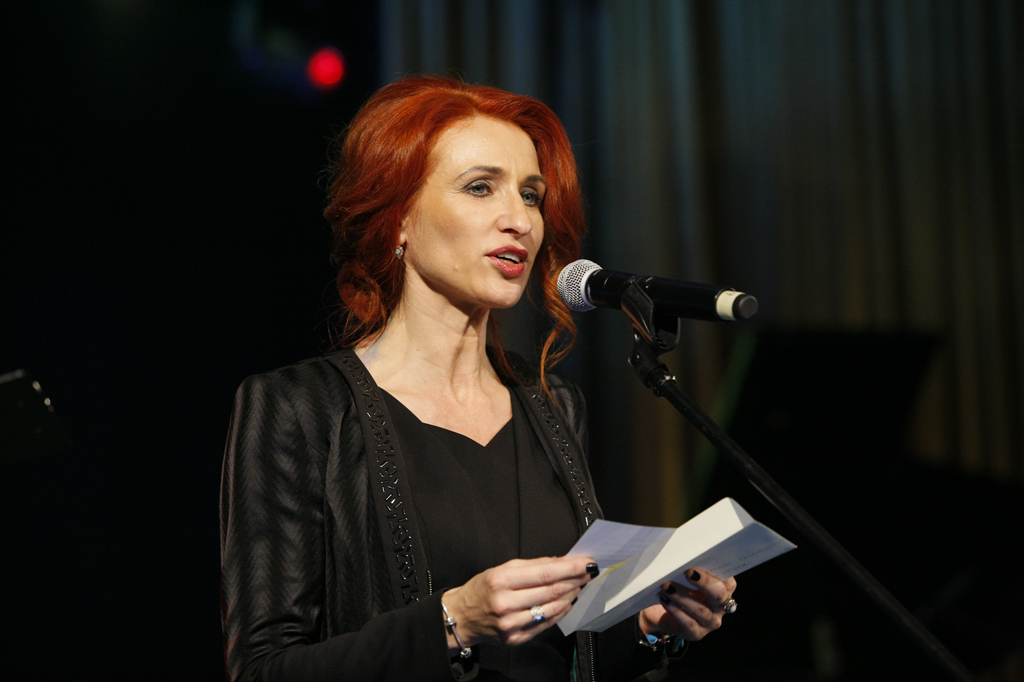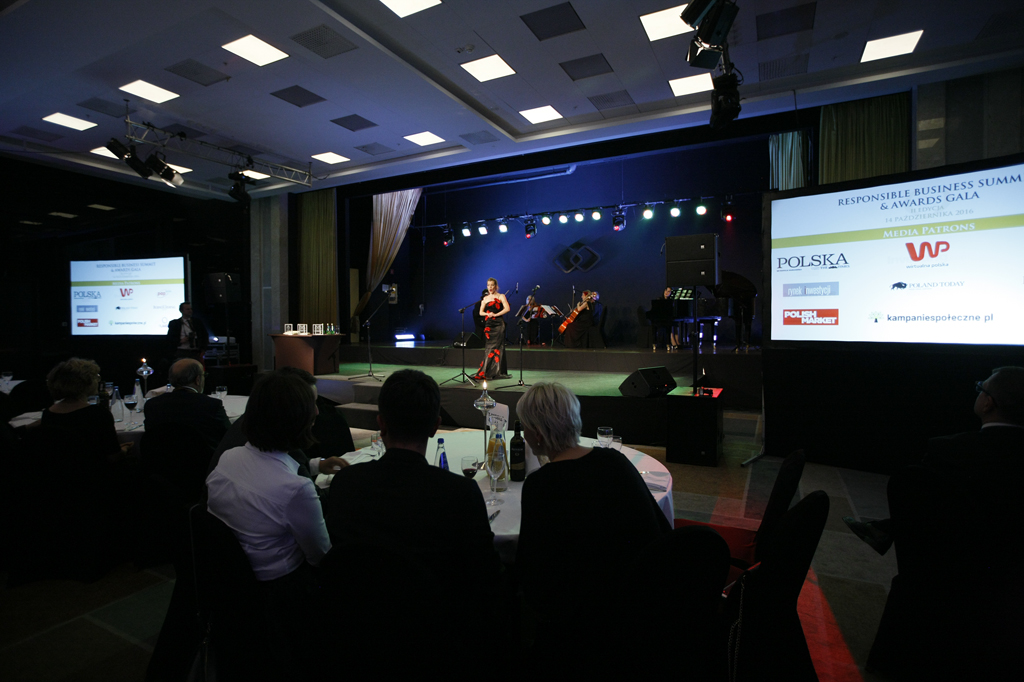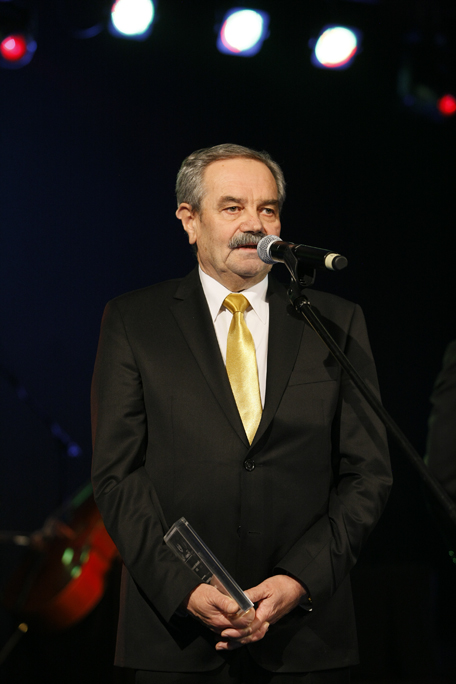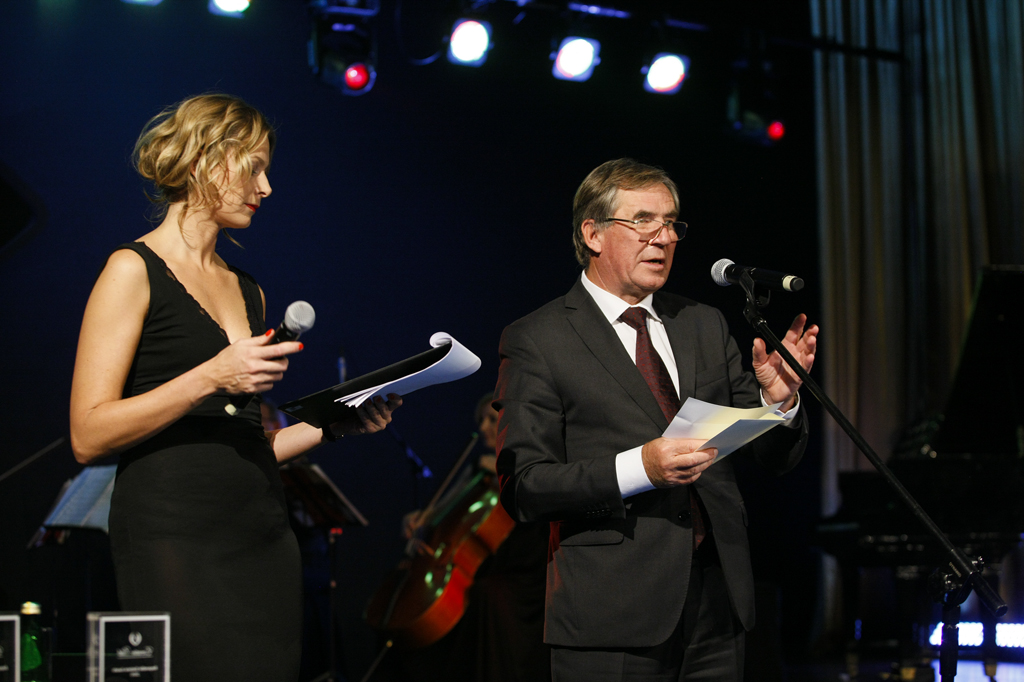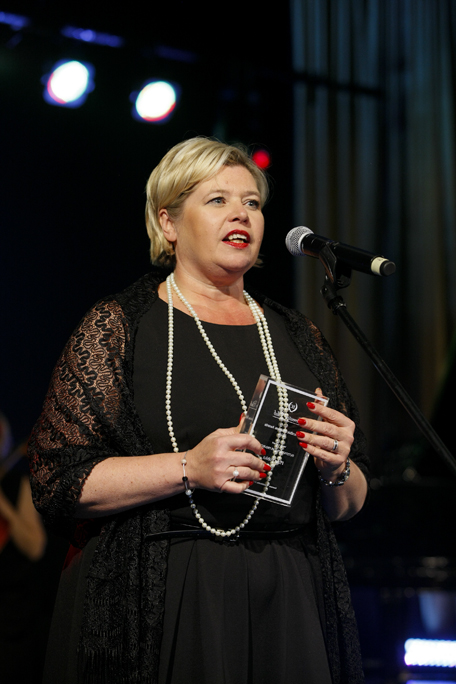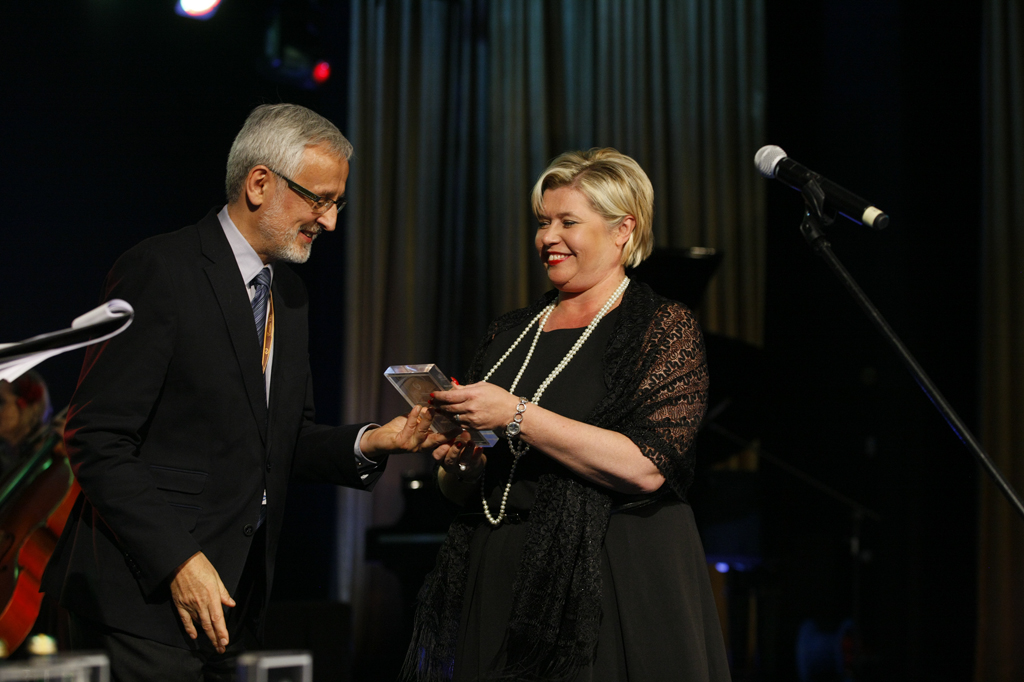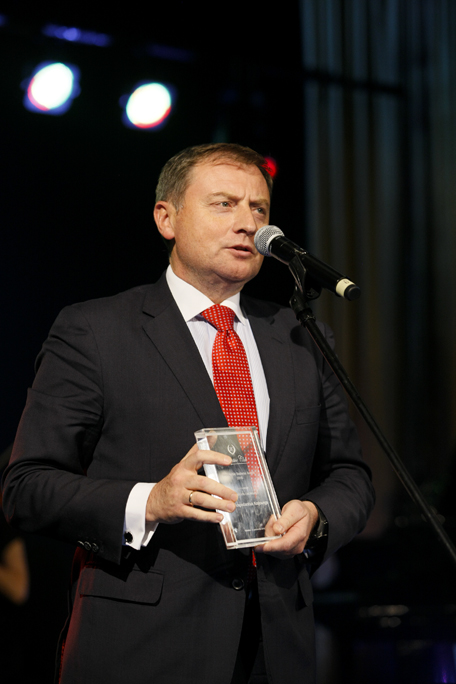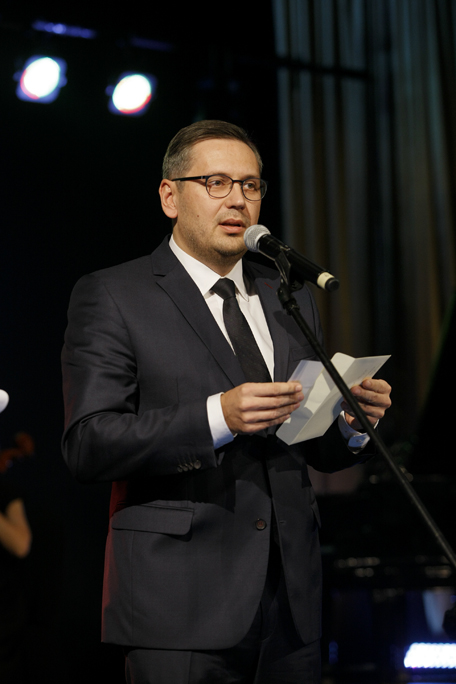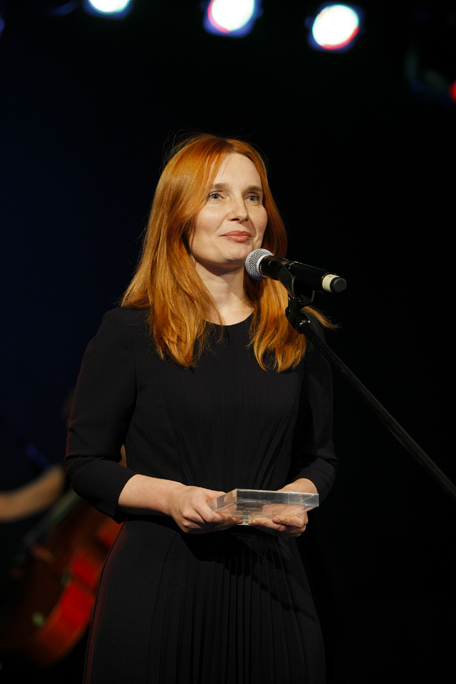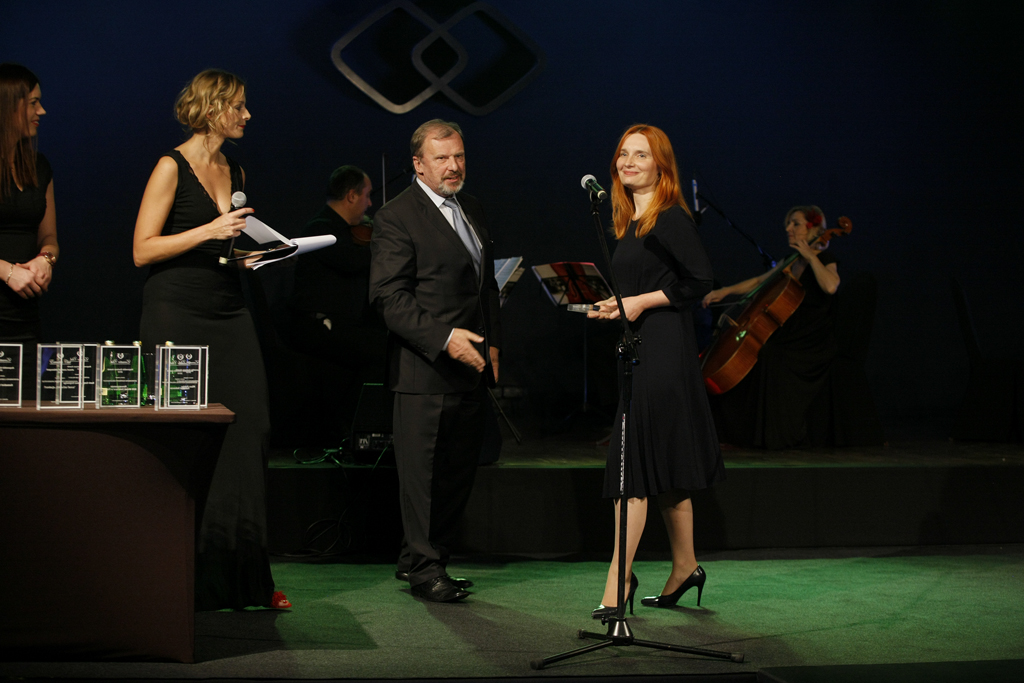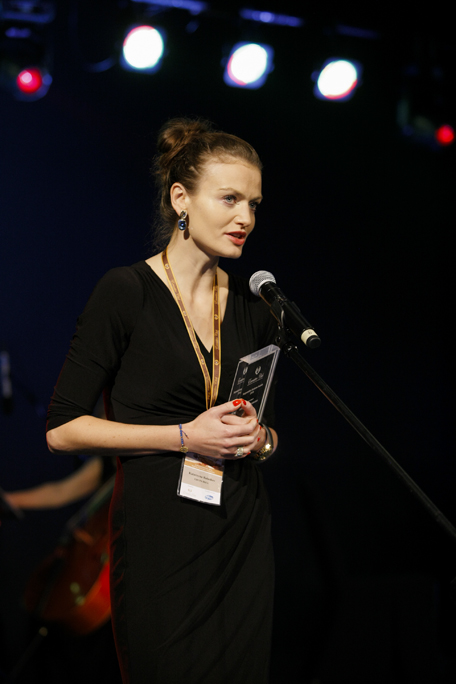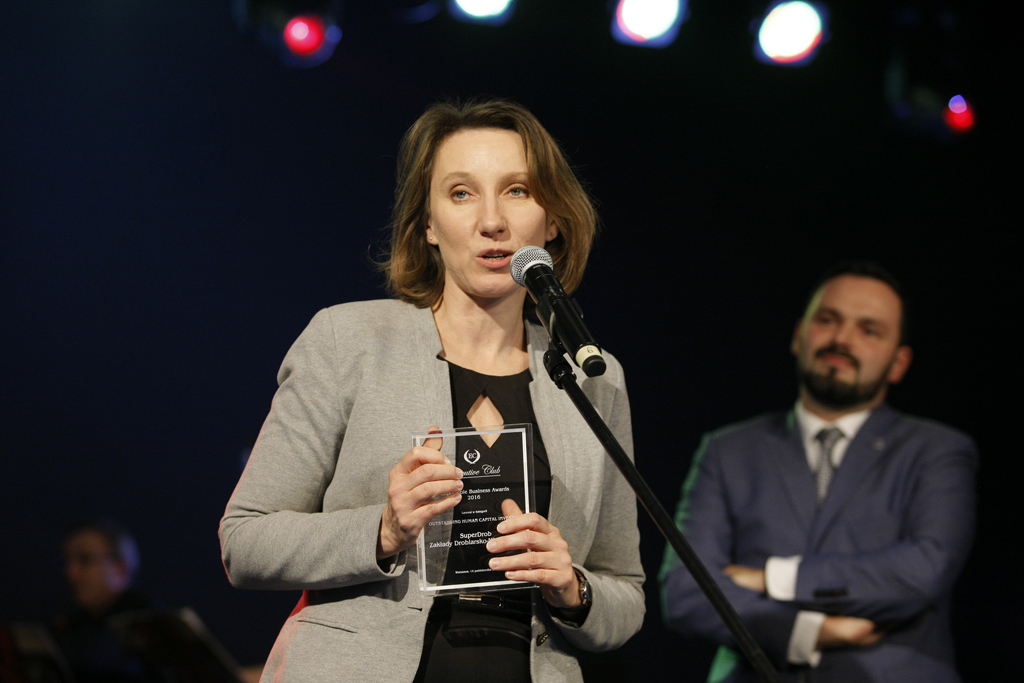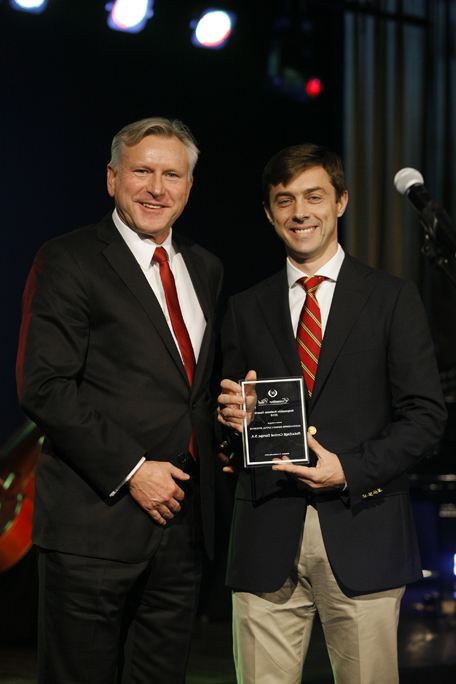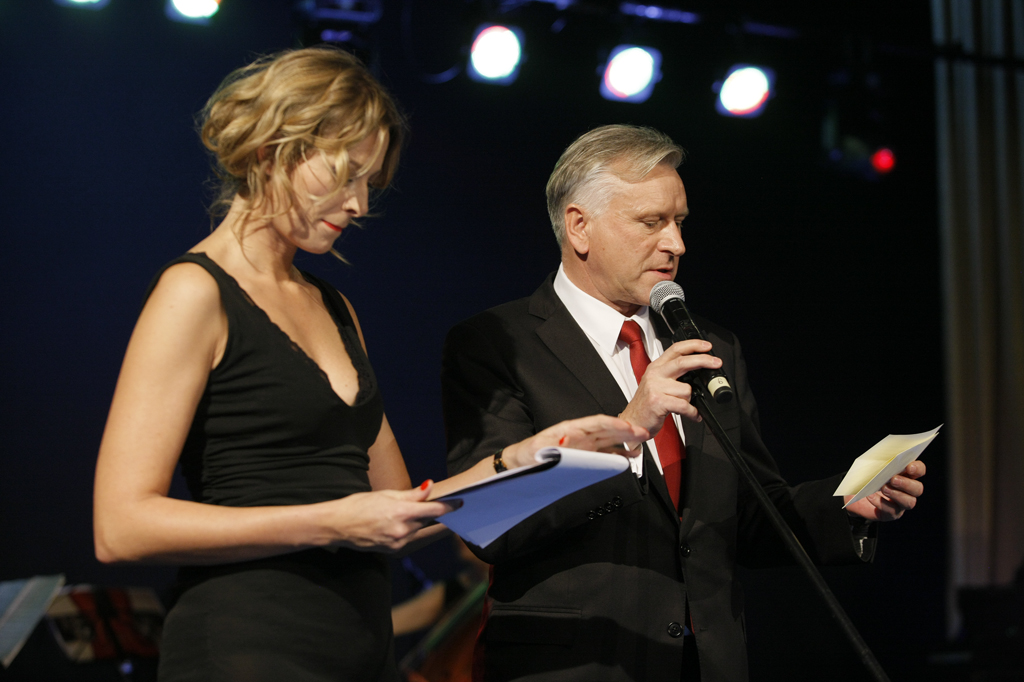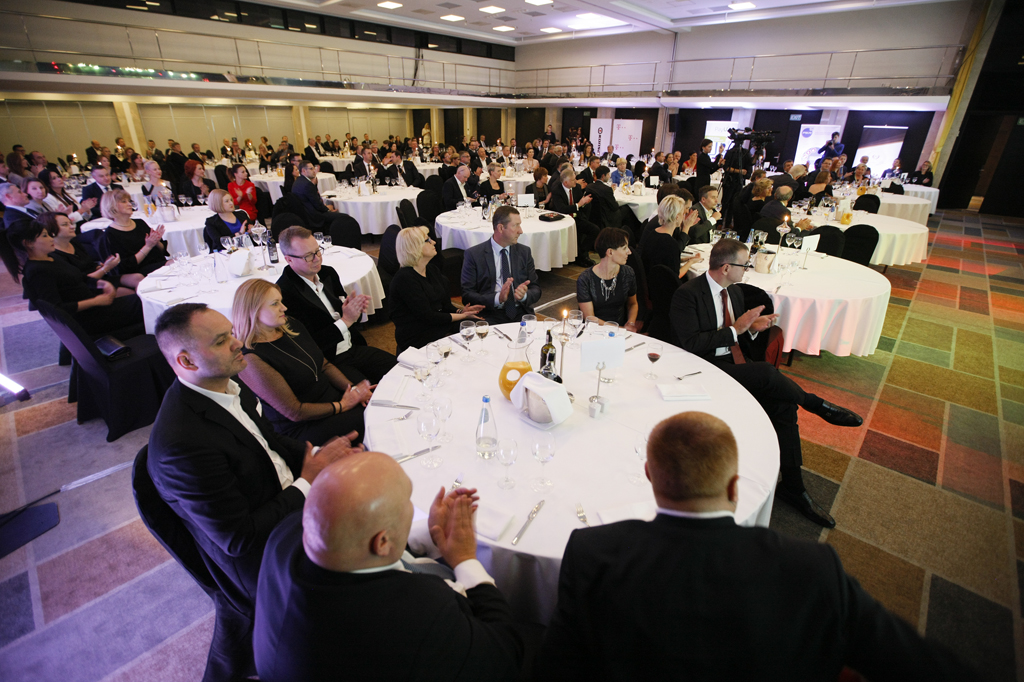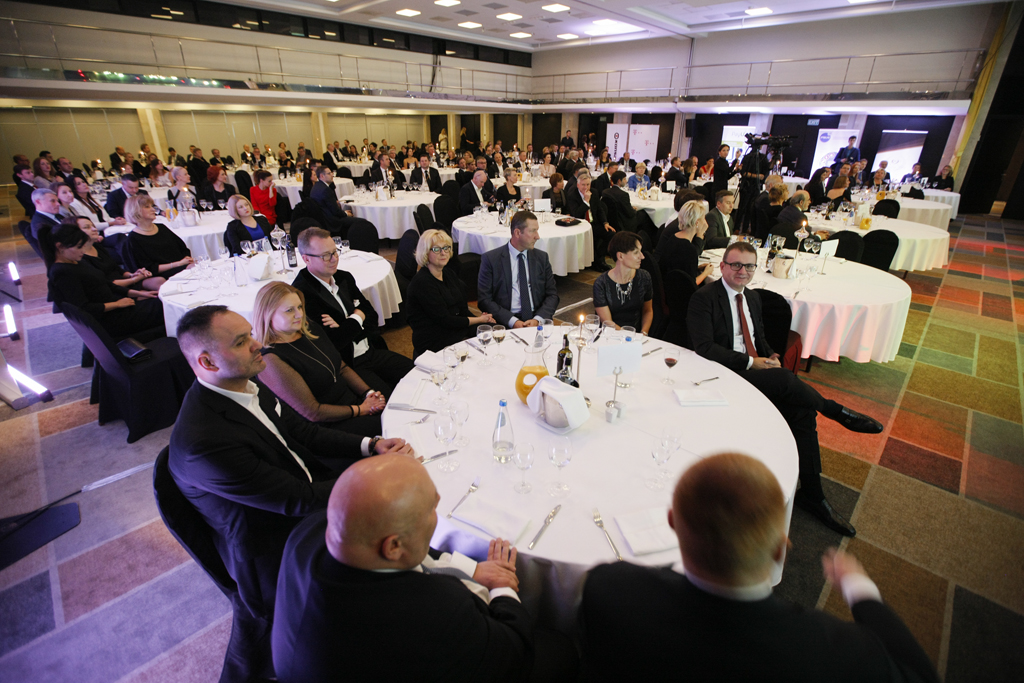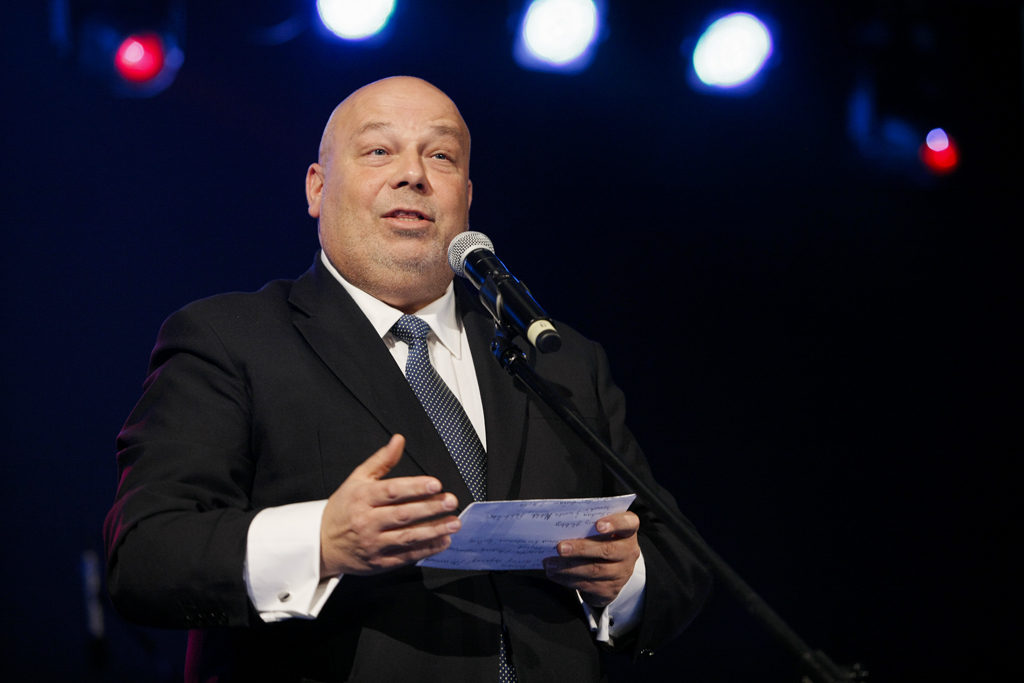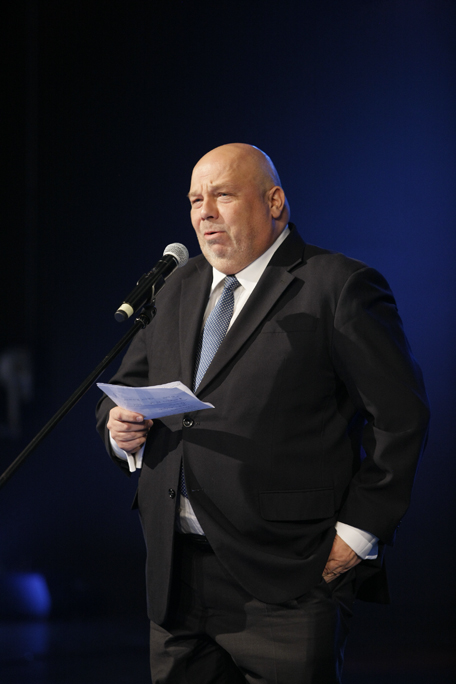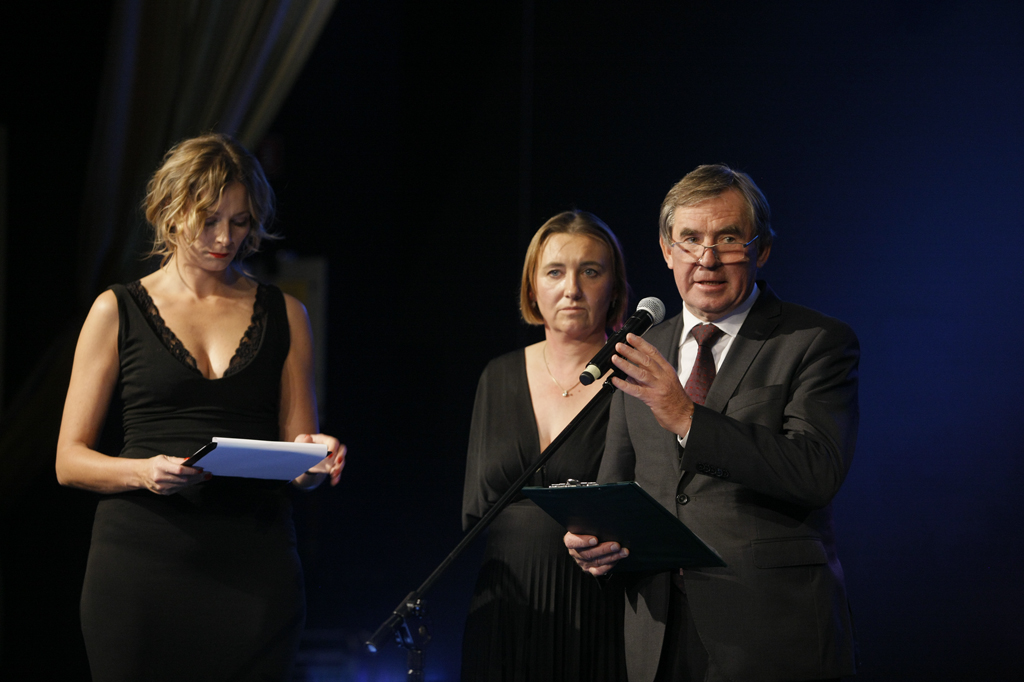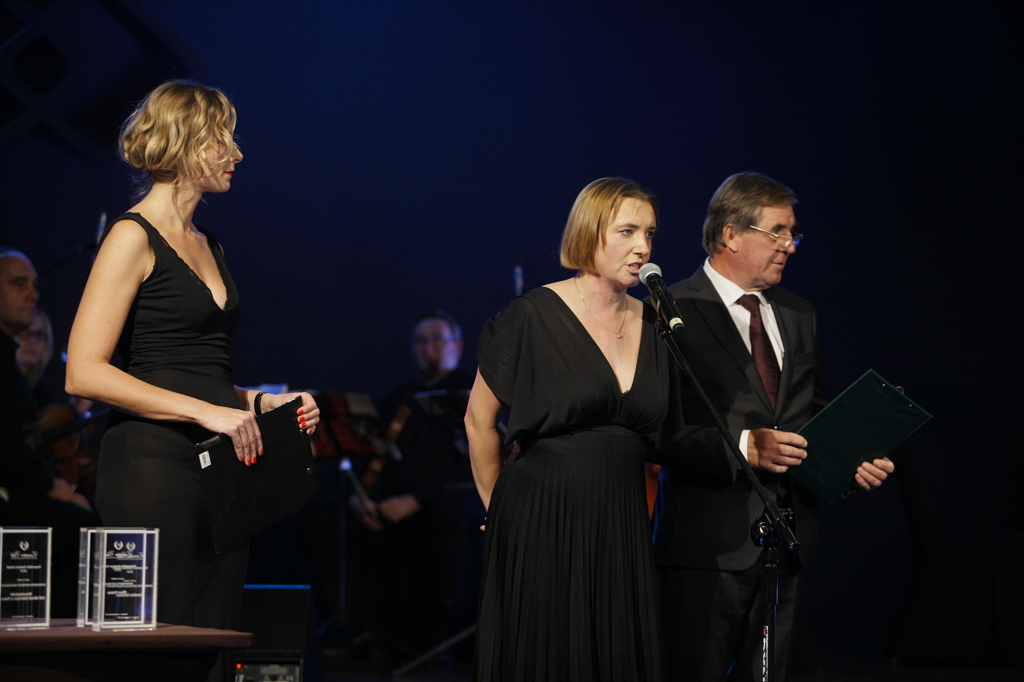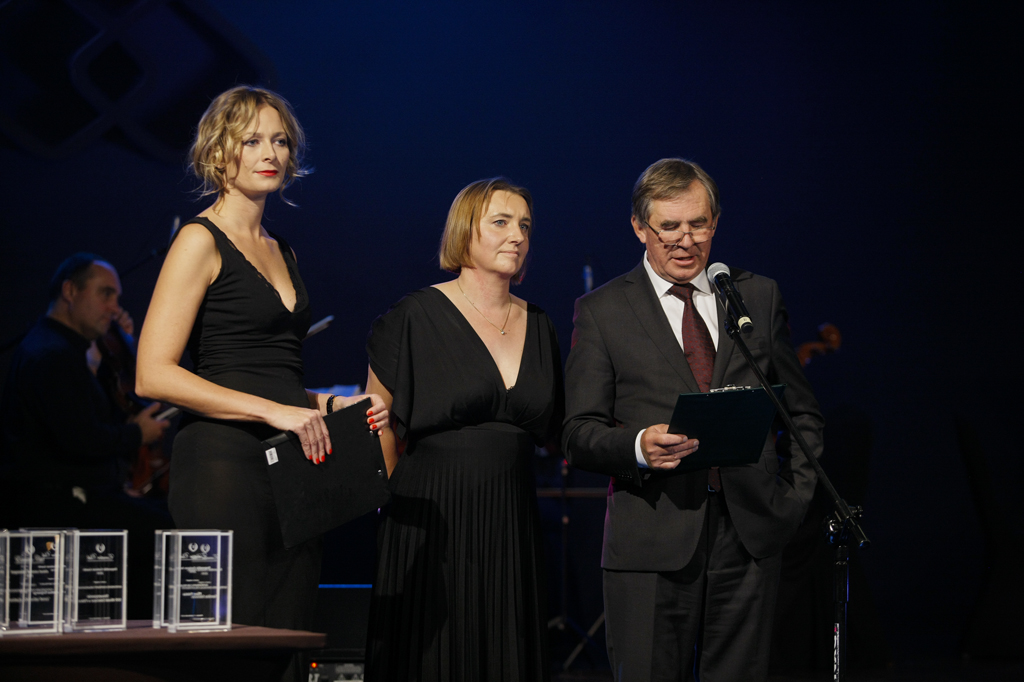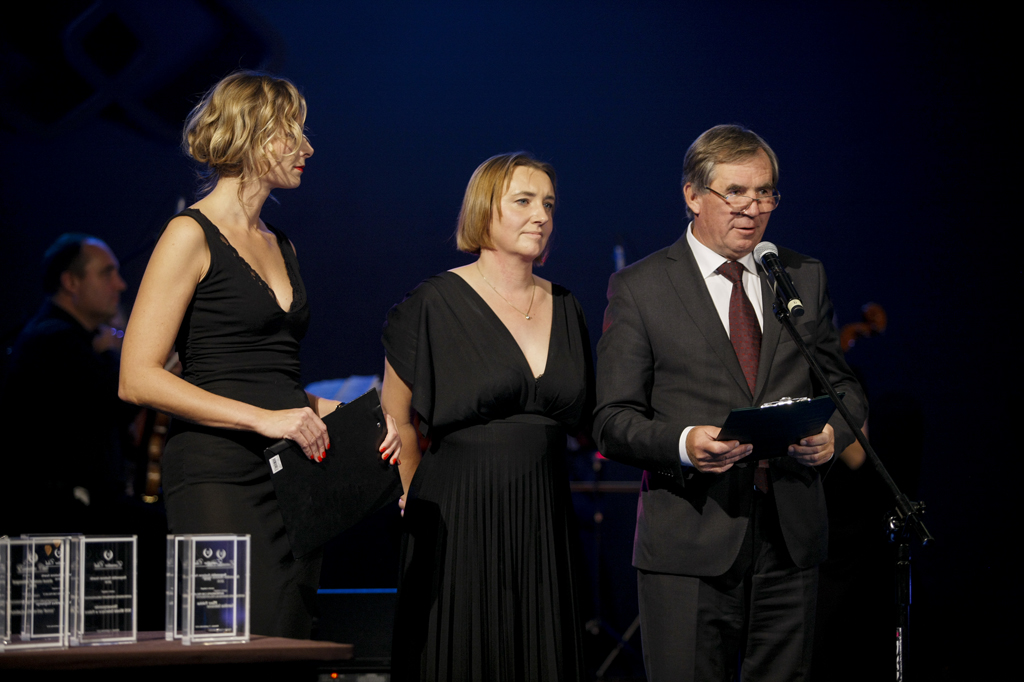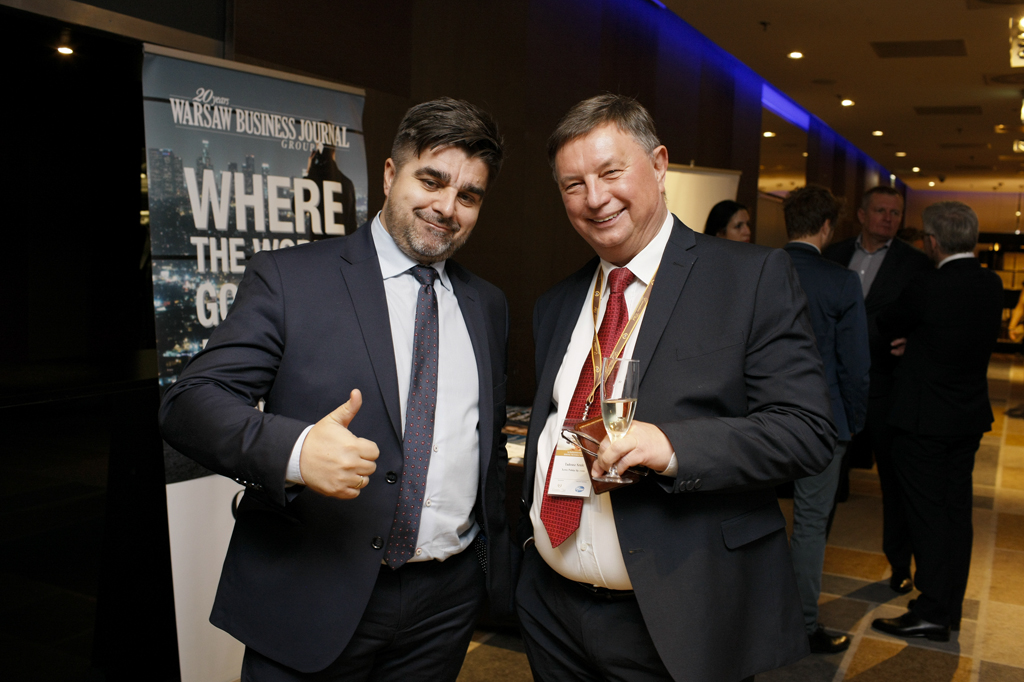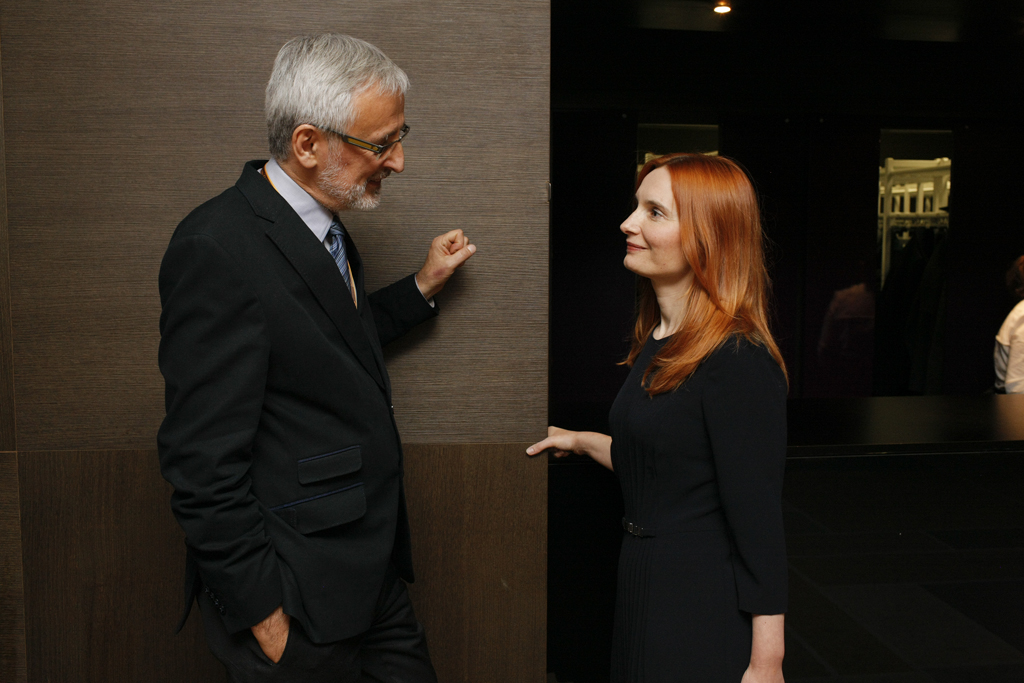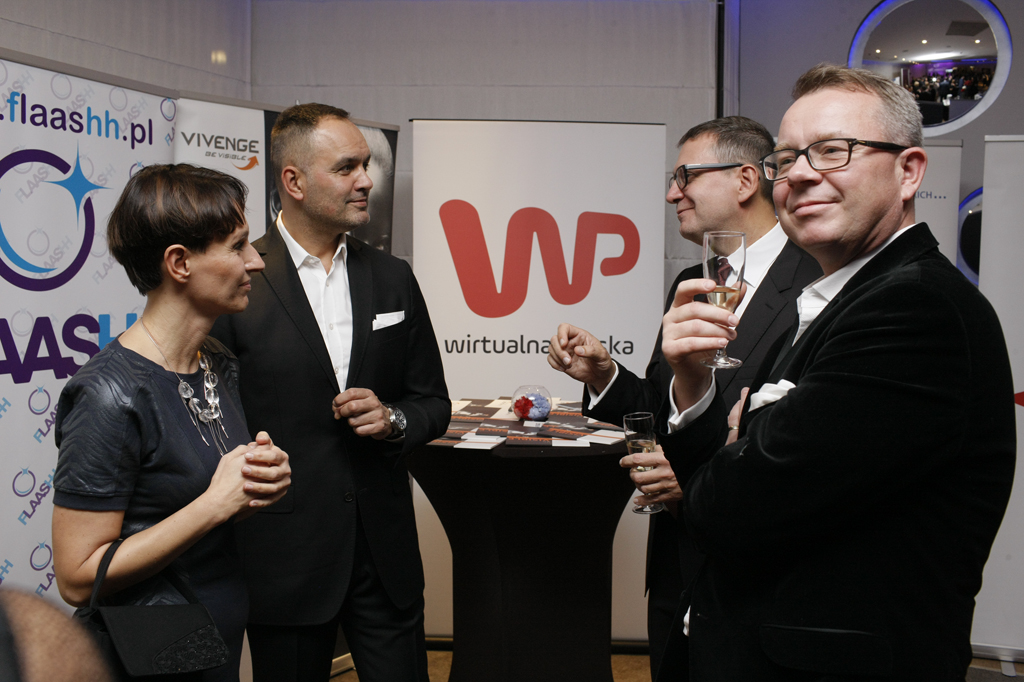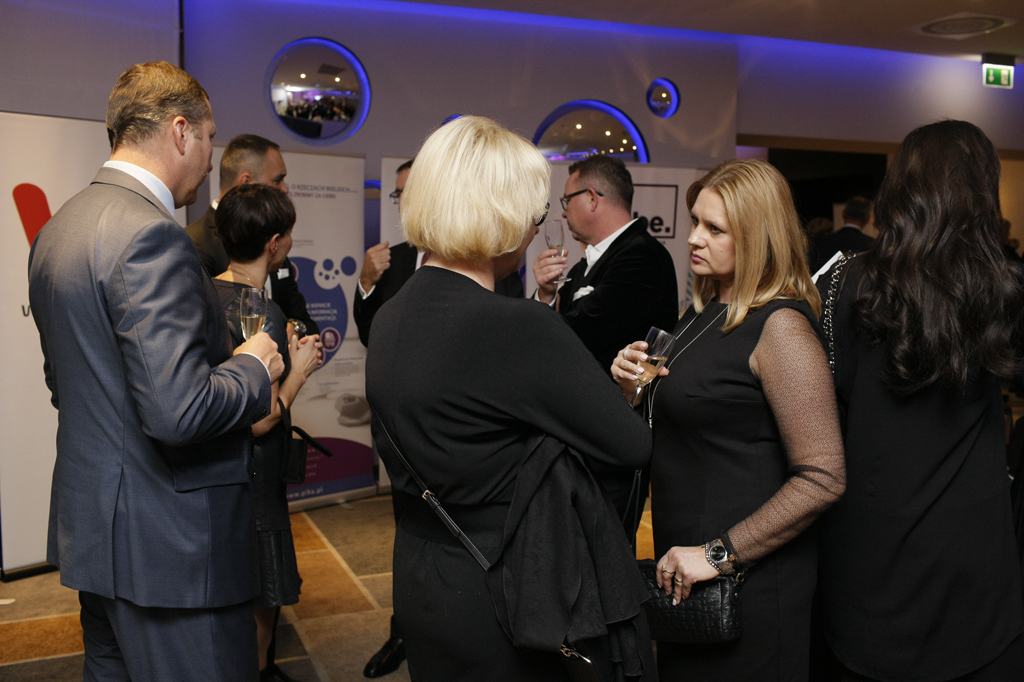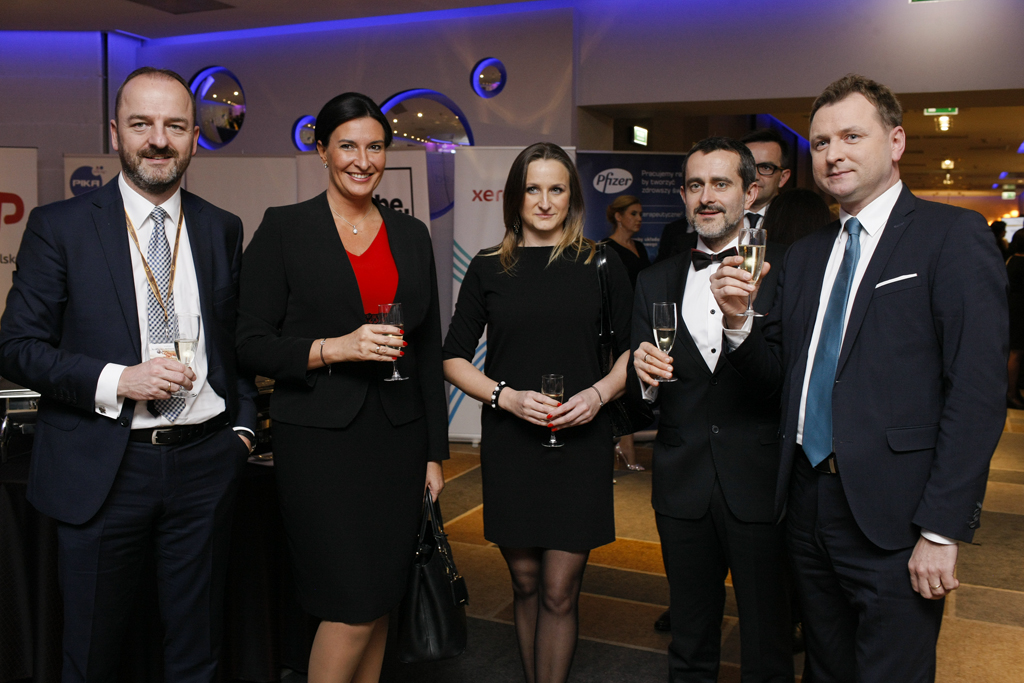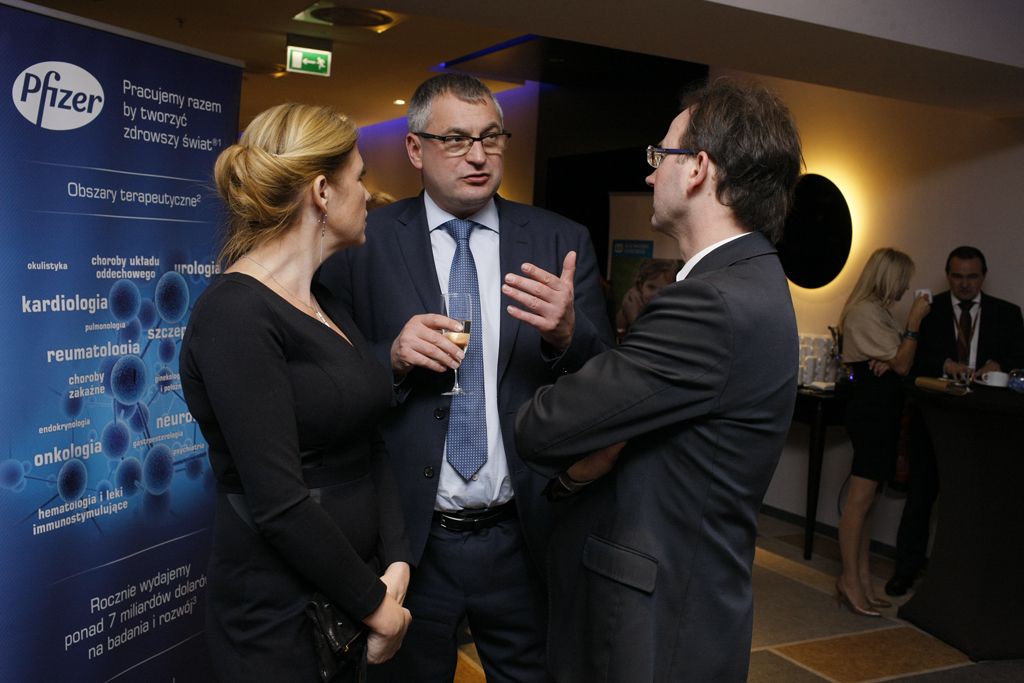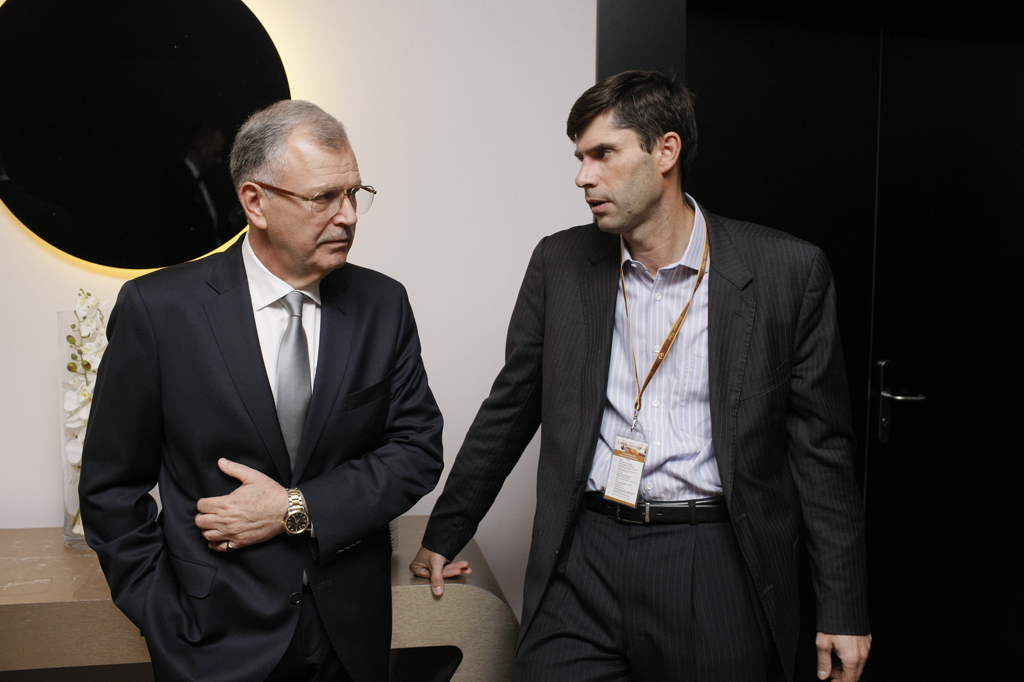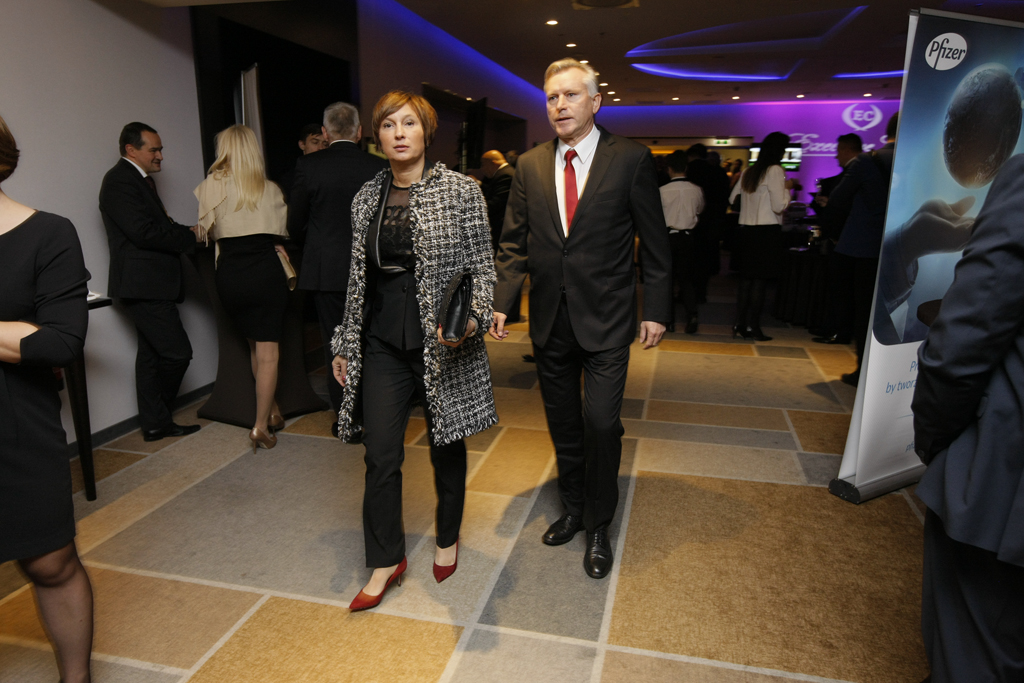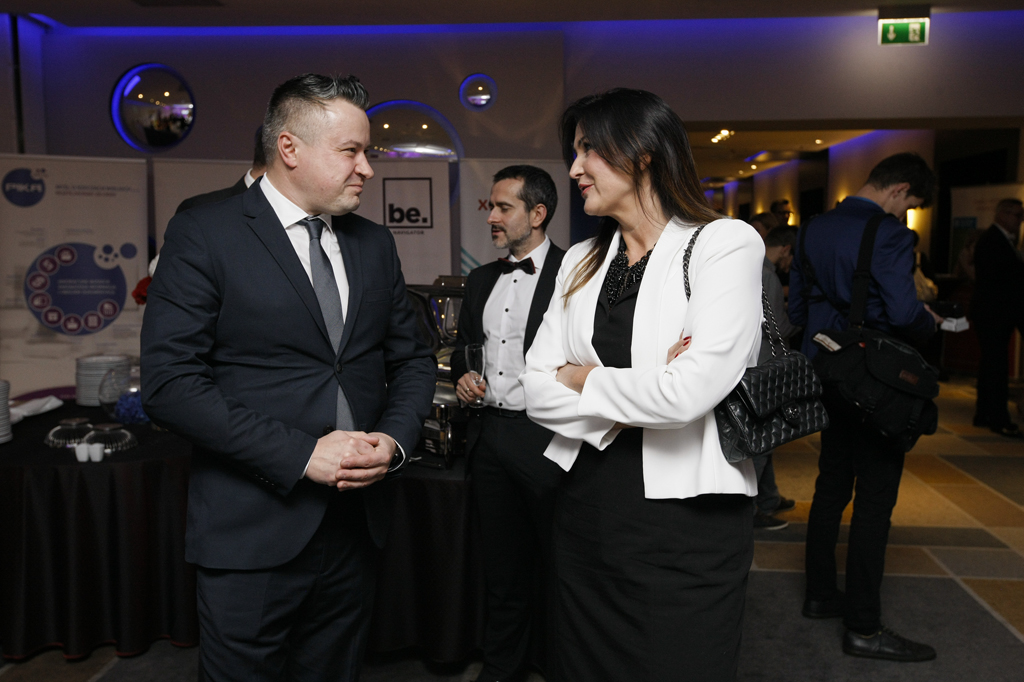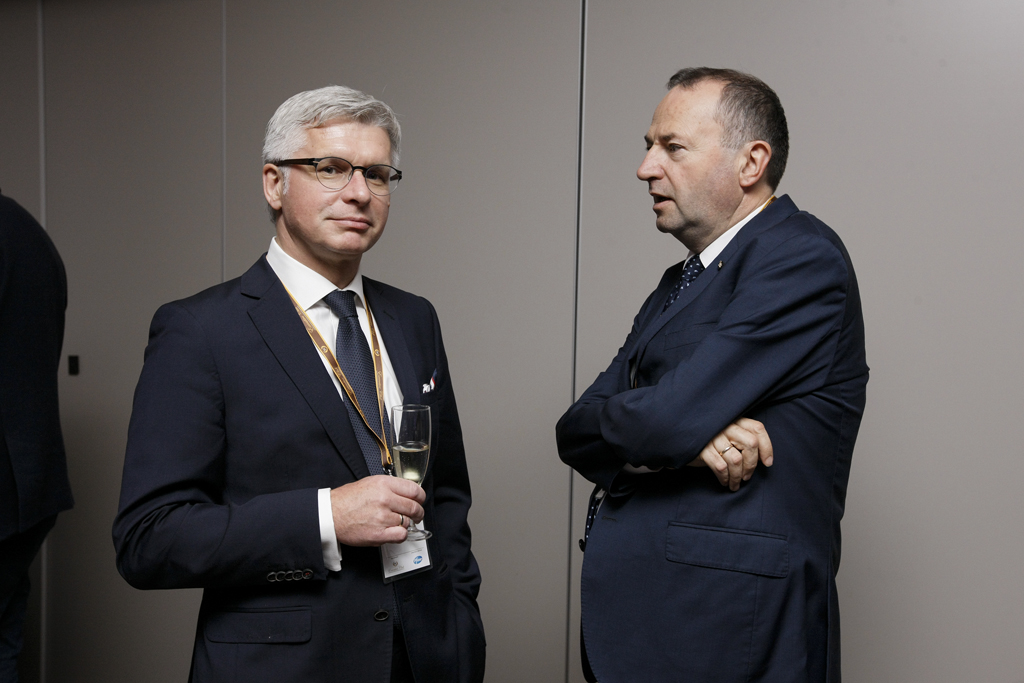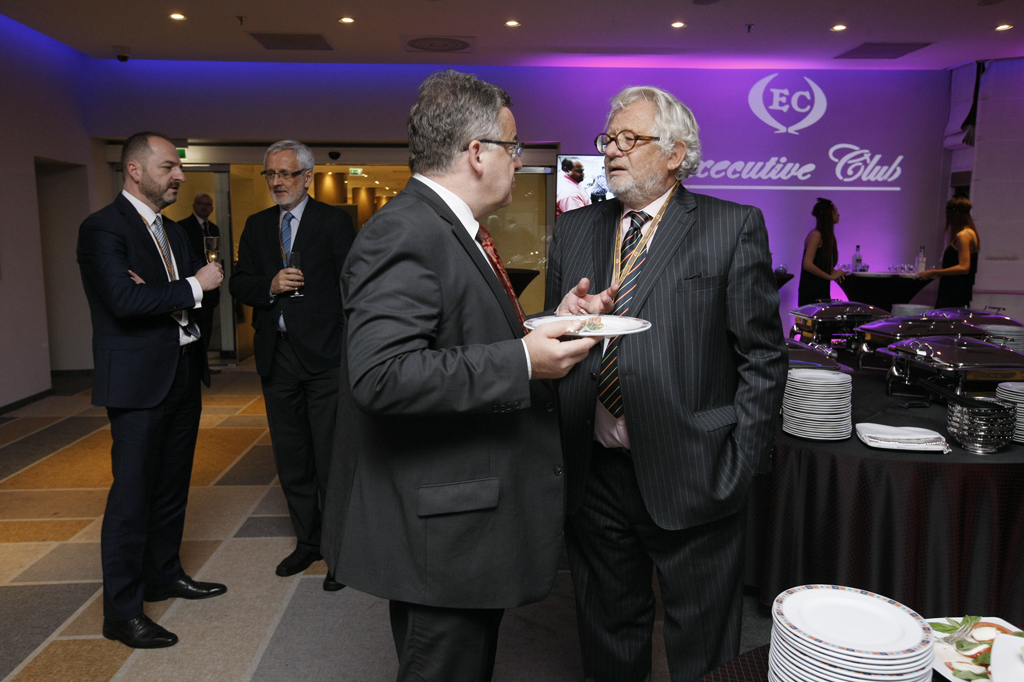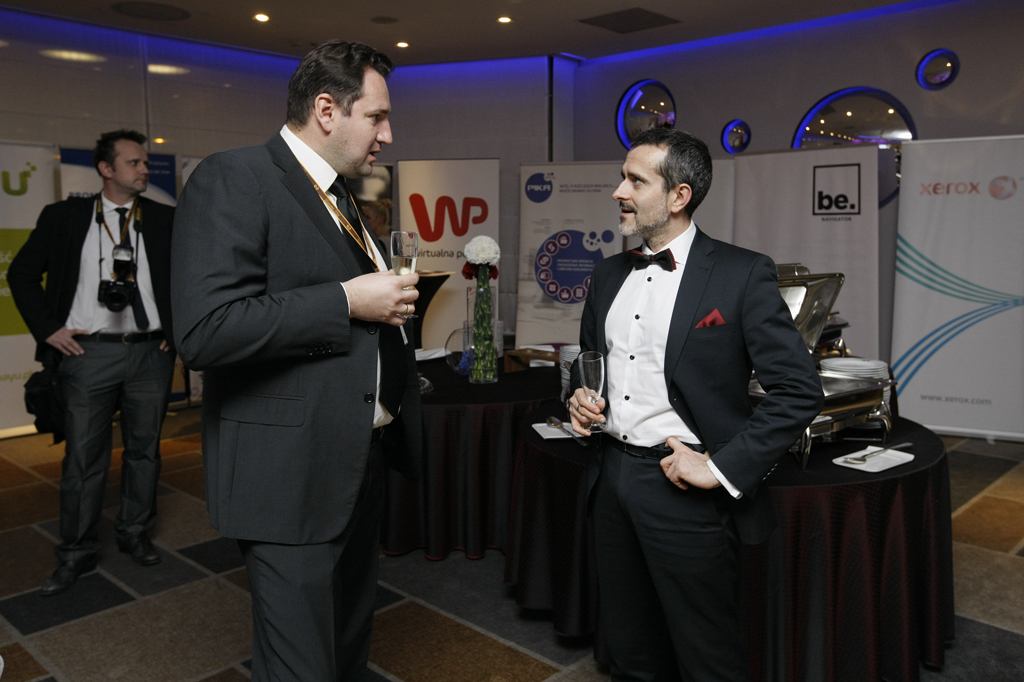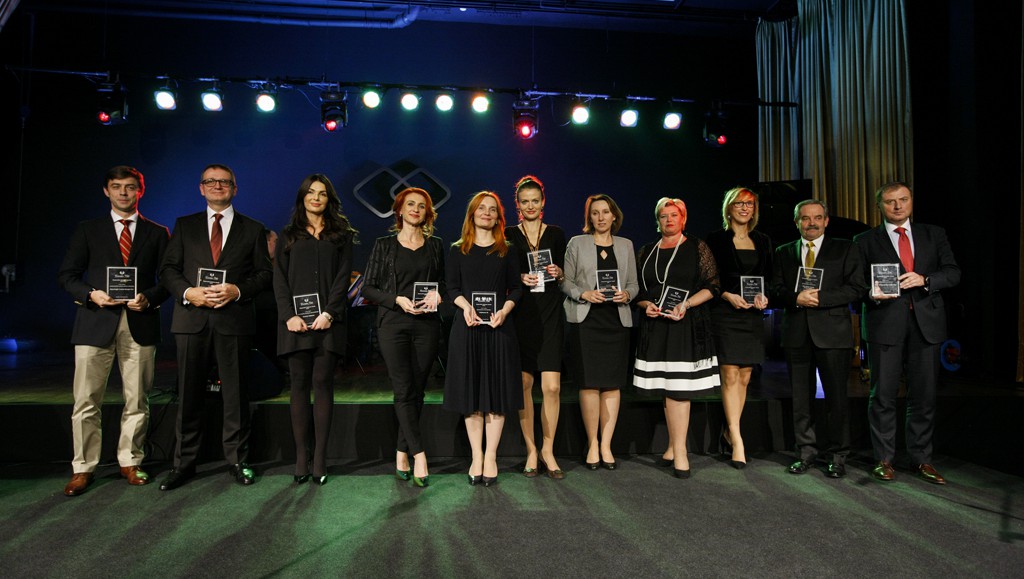
CORPORATE SOCIAL SENSITIVITY REWARDED DURING THIS YEAR’S “RESPONSIBLE BUSINESS SUMMIT & AWARDS GALA” WE ONCE AGAIN HONORED ENTRERENEURS WHO ARE EXCEPTIONALLY INVOLVED IN THE PROMOTION AND IMPLEMENTATION OF CSR AND THE IDEA OF RESPONSIBLE BUSINESS.
The second edition of this event took place on 14 October 2016 in the Sofitel Victoria hotel in Warsaw. The Partners of this year’s edition included Pfizer, PayU, Raiffeisen Bank Polska, T-mobile Polska, Xerox Polska and Promedica24, and some of the Social Partners were Unicef Polska, Stowarzyszenie Siemacha, Stowarzyszenie Wiosna, and Polska Akcja Humanitarna.
“Today’s event aims to emphasize the huge importance of involvement on the part of business in pro-social initiatives and to show how it contributes to building a better society.“ ”We will prove that there are enterprises in Poland that made responsible business their priority,” said Beata Radomska, President of Executive Club.
The event was opened by Kamil Wyszkowski – Director-General of Global Compact, an initiative of the Secretary-General of the United Nations in Poland, who talked about the rules of sustainable development. Eutrophication of the Baltic, which leads to the destruction of the Polish sea, was one of the examples he referred to.
During the conference, there was a debate on matters concerning social inequalities, the impact business exerts on local communities and employee shareholding schemes.
The first discussion panel was moderated by dr Grzegorz Malinowski from the Department of Economics at the Kozminski University and the speakers focused on the ethical dimension of the division between the poor and the rich and social and professional inequalities. One of the questions was what the role of CSR is and what business can do to increase social coherence, including in the context of the so-called junk contracts and the activities of labor unions. Rev. Andrzej Augustyński, Chairman of the Management Board, General Director of Stowarzyszenie SIEMACHA pointed to the fact that social requirements should be institutionalized and correct operation of the system requires professional tools and specialists, not volunteers. He also pointed to the fact that it is not the figures but the effectiveness of a particular social organization that counts. Agata Stafiej – Bartosik, Director of Ashoka: Innovators of the Public in Poland, asked what types of inequalities entail real problems; the basic one is the sense of hopelessness. Social problems are highly complex and there are too many of them for single units to deal with. This is why it is necessary to create communities which would solve problems and seek solutions in particular areas. Prof. Wiesław Nowiński from the Agency for Science, Technology and Research in Singapore referred to the Happiness Index as a proof that happiness is a matter of mentality, not inequality, and said that comparing with others is something that should be avoided. He emphasized the need for business to become involved in building a new innovative culture, creating centers of excellence cooperating with adolescents who leave the country. “It is important that the elite in innovation, culture and technology comes back to the country,” Nowiński said. Cesar Lipka – President of the Management Board of SuperDrob also pointed to the need for education. Teenagers should be educated from the very beginning, he said. Referring to his company’s experiences, he talked about the need to tell employees how important it is to support and engage in social initiatives. He also said that one way to empower rural areas is to take business to the outskirts.
The second discussion panel was moderated by prof. Michał Kleiber – President of the Polish Academy of Science in the years 2007-2015; he focused on CSR strategy as the basis of good marketing, methods of engaging employees in voluntary activities and the issue of measuring effectiveness of a company’s involvement in social assistance. Katarzyna Balashov – Head of Corporate Communications, IKEA Group pointed out that business does not have to be sustainable at all levels, i.e. production, sourcing and sale. Fostering involvement among employees pays off in terms of marketing and sale, but it is primarily beneficial for relations inside the organizations, she argued, referring to her experience at IKEA, e.g. where all employees engage in helping refugees. Jacek Pogonowski – President of the Management Board of Konsalnet Holding talked about how his company supports particular projects out of the need to help, without counting on any financial results. Katarzyna Rudnicka – President of the Management Board of Vivenge started with strong criticism of capitalism which she sees as asocial and exploitative. She appealed not to forget about the human aspect and to foster friendship and solidarity in a world which is driven by money. Małgorzata Rybak-Dowżyk – Corporate Communication Department Director at T-Mobile Polska thinks that sustainable development strategies are of utmost importance.“Doing something for yourself, do something for the others,” she said referring to the company’s activities, including preventing digital exclusion. A commercial campaign should not be combined with a charity event, she said when referring to a number of initiatives undertaken by T-Mobile where both employees and customers were involved. Edyta Ziajowska – Marketing Director at PayU said that the company believes in sharing with their customers what they have worked on together and what corresponds to their values. The way to make employees involved is to make sure that the company’s activities are transparent, she said.
The third discussion panel was moderated by prof. Bolesław Rok, an expert on CSR from the Department of Business Ethics at the Kozminski University and the main topic was responsible investment. The following thesis was put forward: business creates social problems but increasingly often solves them. Prof. Witold Orłowski – Rector of the Vistula University is convinced that those who can should help the disadvantaged and business is successful in using this for marketing purposes. Robert Cyglicki – Director of Greenpeace in Poland pointed to the problem that business engages in initiatives it knows nothing about, e.g. planting trees. He also said that business is a part of the problem and it has to change. Changes should take place at many levels, including the system and corporate level. In order to meet CSR requirements, it is necessary to think in the long term and exert pressure on consumers. He also said that responsible business is not a mere catch phrase and it should be treated as genuine concern for the future and the quality of life. Asked how entrepreneurs should contribute to social development, Marek Krupiński – Director General of UNICEF Polska replied that business is able to finance and react to phenomena such as humanitarian disasters and wars and thinks that engagement on the part of business is positive. Piotr Mirosław – President of the Management Board and Managing Director at Lyreco Polska referred to the importance of launching ecological products and implementing the strategy of sustainable development at each level and in each area of company operations. Francois Colombie – President of the Supervisory Board at Auchan Poland, Russia and Ukraine talked about employee shareholding schemes and the way Auchan strengthens the company through trust, progress and sharing knowledge and power and Maciej Bardan – First Vice-President of the Management Board at Raiffeisen Bank Polska referred to the issue of taking care of shareholders’ interests at each stage of business processes. CSR is treated as a tool for engaging employees and making sure they feel a bond with the company and feel responsible for the place they work in. What prof. Orłowski said is a good summary of the discussion, namely that if a company has a good CSR strategy it serves both marketing purposes and contributes to building good relations inside the company.
The conference was concluded with the “Responsible Business Awards” gala during which awards were given to entities which stand out with their achievements in CSR and engagement in pro-social initiatives. The gala was opened by Grzegorz Gruca, Vice-President of Polska Akcja Humanitarna, who pointed out that their organization would not work without help from the numerous companies which gathered that evening in Sofitel and congratulated all the winners who received the prestigious awards.
RESPONSIBLE BUSINESS AWARDS WINNERS
OUTSTANDING HUMAN CAPITAL INVESTOR
Mota-Engil ex aequo with SuperDrob S.A.
OUTSTANDING CSR STRATEGY
Ikea Polska ex aequo with Polpharma SA
OUTSTANDING CSR PROJECT
Bank Gospodarstwa Krajowego ex aequo with Pfizer Polska and special distinction for Pol-Miedź Trans
OUTSTANDING CORPORATE PHILANTHROPIST
Dr. Oetker Polska ex aequo with Konsalnet Holding SA
OUTSTANDING NON PROFIT ORGANIZATION
Fundacja Orlen-Dar Serca ex aequo with Stowarzyszenie SOS Wioski Dziecięce w Polsce
Additional category OUTSTANDING INDIVIDUAL PHILANTHROPIST Karolina Sołowow, President of the Council of Fundacja Fabryka Marzeń.
Strategic Partner: Pfizer Polska
Main Partner: PayU
Partners: Auchan, Cigno Consulting, Edenred, Lyreco, Promedica24, Raiffeisen Polbank, SuperDrob
Gala Partners: DOW, Konsalnet, Pika, Promedica24, T-Mobile Polska, Vivenge, Xerox Polska
Networking Partner: J.A. Baczewski
Media Partners: Wirtualna Polska, Polska The Times, Warsaw Business Journal, CEO Magazyn, PAP Biznes, Polish Market, Rynek Inwestycji, Law Business Quality, Polish Market, Poland Today, Newseria, Biznes Alert, investing.com, kampaniespoleczne.pl, CR Navigator, Flaash.tv, polityczna.tv, Biznes Alert, Obserwator Międzynarodowy, CRSInfo, Be. Navigator

